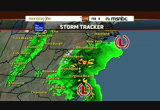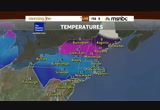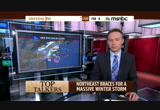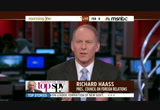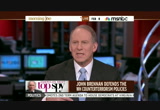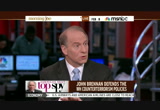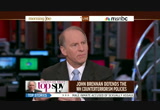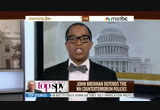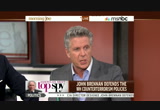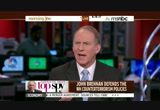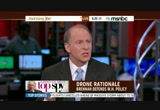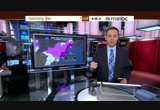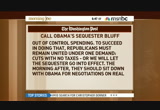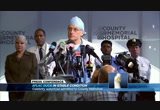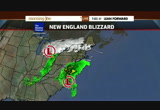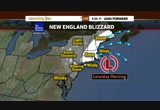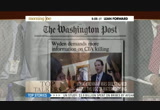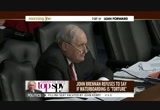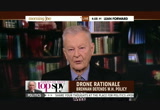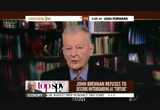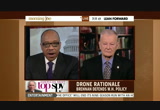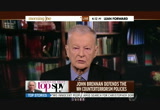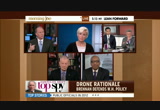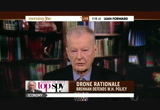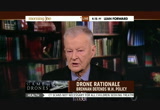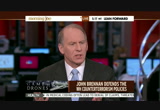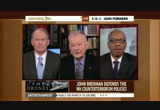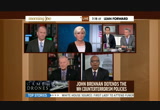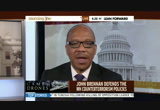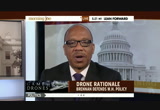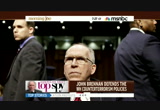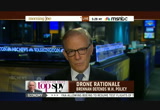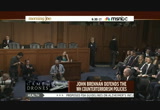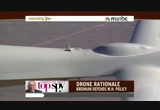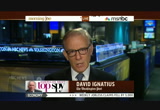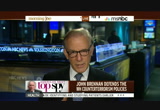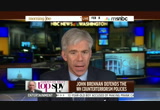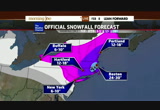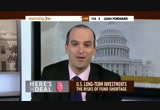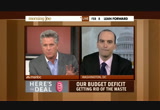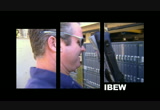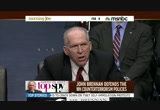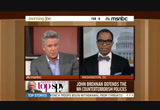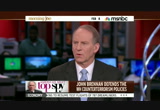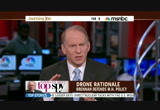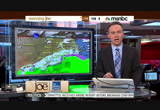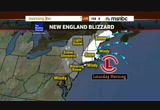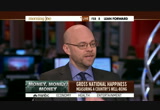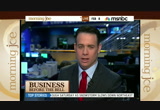tv Morning Joe MSNBC February 8, 2013 3:00am-6:00am PST
3:00 am
stewart is not surprised, take a look. >> the u.s. postal service says delivering the mail on saturdays must stop if they are to survive. >> the postal service hopes the cuts will help it save some $2 billion annually after losing nearly $16 billion last year. >> wow. i can't believe the business model of transporting letters with vehicles across the country for 40 cents a pop is failing. so where do you want me to take that, hawaii? no, no trouble, i'll put out a plane and get it there in two days. you got a quarter? yeah i'll do it for a quarter. yeah, [ bleep ] it, i'll just do it. everybody's excited for the snow. poor bill has to work all day tomorrow. his son william's birthday. >> maybe you can replace me, go to his birthday party for me. >> i'll be happy to do that. how many inches in new york? >> i'm going for 6 to 8, weather
3:01 am
service is going for 12. >> bundle up. still ahead, texts and e-mails are next. "morning joe" is now just moments away. officemax is celebrating our new collaboration with go daddy! with an online package including: domain name, website builder with five pages and basic email just $49.99! that's up to 76 percent below online providers and only at officemax stores! investors could lose tens of thousands of dollars on their 401(k) to hidden fees. is that what you're looking for, like a hidden fee in your giant mom bag? maybe i have them... oh that's right i don't because i rolled my account over to e-trade where... woah. okay... they don't have hidden fees... hey fern. the junk drawer? why would they... is that my gerbil? you said he moved to a tiny farm. that's it, i'm running away. no, no you can't come! [ male announcer ] e-trade. less for us. more for you. this reduced sodium soup
3:02 am
says it may help lower cholesterol, how does it work? you just have to eat it as part of your heart healthy diet. step 1. eat the soup. all those veggies and beans, that's what may help lower your cholesterol and -- well that's easy [ male announcer ] progresso. you gotta taste this soup. you're playing tomorrow. [ coughs ] ♪ you can't let a cold keep you up tonight. [ snores ] vicks nyquil. powerful nighttime 6-symptom cold & flu relief. ♪ [ sniffles, coughs ] excuse me. i need something for my cold symptoms. [ sniffles ] we've got dayquil for day and nyquil for night. [ thuds ] you didn't see that. [ male announcer ] right now at walgreens dayquil and nyquil are just $10.99 with card.
3:03 am
all your important legal matters in just minutes. protect your family... and launch your dreams. at legalzoom.com we put the law on your side. can your moisturizer do that? [ female announcer ] dermatologist recommended aveeno has an oat formula, now proven to build a moisture reserve, so skin can replenish itself. that's healthy skin for life. only from aveeno. ♪ don't know what i'd do ♪ i'd have nothing to prove [ male announcer ] zales is the diamond store. save 30 percent off an amazing selection storewide, now through sunday.
3:04 am
john tower, lots of e-mails, texts, tweets about the big storm? >> everybody's very excited. we've got jane, my 9-year-old daughter and i want to see the first snowflakes of 2013. vinnie, my two kids woke me up to listen for cancellations. >> rhode island possibly shut down maybe even until sunday. could be very ugly there. "morning joe" will have more on the show coming right up. great show, everyone. ♪ this is now our fifth prayer breakfast. and it is always just a wonderful event, but i do worry sometimes that as soon as we leave the prayer breakfast, everything we've been talking about the whole time at the prayer breakfast seems to be forgotten. on the same day of the prayer breakfast. i mean, you'd like to think that
3:05 am
the shelf life wasn't so short. i go back to the oval office, and i start watching the cable news networks, and it's like we didn't pray. >> good morning. it is friday, february 8th. oh, we're praying. welcome to "morning joe." top of the hour. 6:00 on the east coast. and with us on set, we have -- this is why i'm praying -- the chairman of deutsche incorporated, donny deutsch, back here. also, the president of the council on foreign relations, richard haass. and in washington, nbc news capitol hill correspondent, kelly o'donnell. and pulitzer prize-winning editorial writer for "the washington post" and msnbc contributor, jonathan capehart. willie, we have a lot of heavy stuff to cover this morning. big storm. bill karins standing by, he's going to talk about that. peaches and cream? >> you start off with peaches and cream? >> yeah.
3:06 am
yeah. >> you know, sometimes a moment happens on television. >> i missed it. i missed it. >> does anyone have the picture? >> it was something else. i mean -- everyone was talking about it. i thought i'd bring that up on this friday morning. >> let's call it camaraderie. >> willie had a moment. >> al roker and i had a moment on the set of the "today" show. >> we'll call it a tease. oh, maybe not. >> i'm not going to give any context. i'm just going to let you watch. >> no context at all. okay. no, really. just let it hang. in three, two, one. okay. >> there it was. there it was. >> peaches and cream. >> i need context. >> his and hers gifts, valentine's day. they've got this lipstick, chapstick kind of stuff. one tastes like peaches, the other like cream. and when you kiss, it creates the peaches and cream sensation. >> thank you very much. >> you have to combine them. >> okay, that along with later
3:07 am
in the show, we have this "new york times" economics writer is going to come on and talk about -- he's crunched the numbers -- how money can actu actually buy happiness. that's depressing. but first, two major stories, we're going to talk drones and the hearings on capitol hill. we begin with what will be a record-setting winter storm bearing down on the northeast that could bring up to two feet of snow to the region. let's go to bill karins for the latest. bill, you've been doing double duty today. >> the storm still on schedule. nothing has changed much since last night. let me show you where the storm is because today is storm day. the storm is now becoming a nor'easter, starting to strengthen right over the top of cape hatteras. it's going to take a path somewhere just south of cape cod, moves in a northeasterly direction and provides most of new england with northeast winds. now, if the winds are strong enough, they become blizzards. we think this one will. let me show you the official snowfall forecast. i'm thinking that this bull's-eye is -- this is where the storm possibly is historic.
3:08 am
this i-95 corridor, the 495 loop, boston, providence, up towards the 495 loop towards lowell, that's who could get widespread two feet of snow, possibility of some getting up to 30 inches of snow. the biggest snowfall ever in boston is 27 inches. so that's -- i mean, we're in that sort of territory. boston snow records go back almost 100 years. pretty incredible stuff. the hardest forecast is the new york city because the temperatures are kind of borderline. it may start as snow, go over to rain, a little sleet and back over to snow late. that's why the snow totals for new york, i have them down to six to ten inches. if it's all snow, it could be as much as 14 inches in new york city. that's the big question mark. hartford's going to get nailed, also all the way to southern portions of new hampshire and portland, maine. i mentioned temperatures. notice it's 38 in philly, 34 in baltimore. that's why southwards i don't think you'll get much out of this at all. that's why d.c.'s not getting snow. look how cold it is in the new england area. this is how it plays out. again, the bottom line, the
3:09 am
worst of the storm arrives after noon today. so if you're in northern jersey, new york city area, long island, connecticut, hudson valley all the way through eastern mass and rhode island, do not be on the roads after noon today. that's the most important message everyone needs to know because if you do that and you get stuck on the roads, it's going to snow so hard tonight ux you'll have to get rescued and possibly buy snowmobiles. it's going to be hard for the plows to get through the roads. that is the biggest concern when we have these blizzards is these cars get stranded and then we can't clear the roads and we're in the middle of thee storms trying to rescue people. >> is this potential looking like a storm that's going to break records? >> definitely top ten records in a lot of cities, especially hartford, providence, portland, maine, possibly to boston now. as far as all-time records go, that's the big question. it will be a close call, especially providence and boston. they have the best shot. >> get ready for power outages. come back throughout the show. we'lling following this. on capitol hill yesterday, tough questions about drones and waterboarding dominated a
3:10 am
contentious hearing for the man nominated to be the next head of the cia. john brennan, the architect of the obama administration's drone program, strongly defended their use, saying strikes only take place to prevent terror threats, not as punishment for them. >> i think there is a misimpression on the part of some american people who believe that we take strikes to punish terrorists for past transgressions. nothing could be further from the truth. we only take such actions as a last resort to save lives when there's no other alternative to taking an action that's going to mitigate that threat. >> democratic senator ron wyden who has demanded more insight into the administration's legal justification for drone strikes against americans pressed brennan on the issue. >> do you believe that the president should provide an individual american with the opportunity to surrender before killing them? >> any american who joins al qaeda will know full well that
3:11 am
they have joined an organization that is at war with the united states and has killed thousands upon thousands of individuals, many, many of them who were americans. so i think any american who did that should know well that they, in fact, are part of an enemy against us and that the united states will do everything possible to destroy that enemy to save american lives. >> richard haass, you watched all that testimony yesterday, but you also read from beginning to end that white paper that was released earlier this week, or is that nbc got ahold of, and you were troubled by it, as someone who's served in the white house on foreign policy. what bothered you the most about the way it was put together? >> let's separate it into two sets of issues. one is the criteria for when the united states does say a drone attack and the other is the process by which we make the specific decision. the criteria are simply not sustainable. for example, there's three. the first with is that it has to be imminent, the idea that the terrorists planning an attack are about to launch an attack. we don't know that.
3:12 am
so you can't meet the first threshold you set. we don't wait till it's imminent because we never know. and that's clear if you look at all the drone strikes we've done, by the time someone has made the career choice to be a terrorist, we decide that they qualify as a potential target. indeed we go beyond that. so-called signature strikes, you target people who appear to be doing the sorts of things that terrorists tend to do. we set up criteria that we ourselves do not meet. we then say it has to be the capture is infeasible. you don't want to have to capture because that would be putting special forces in harm's way. we have a policy that in a funny sort of way we need to violate every day. so i really don't understand the document that the justice department cooked up. it simply doesn't bear scrutiny. >> we'll go deeper into drones
3:13 am
and waterboarding in just a moment. i wanted to get to kelly on this as well. richard, overall, we've been watching hearings, hagel, kerry, others who were nominated for different positions. how did brennan do? >> i think he had a little bit of trouble on the waterboarding and the torture question about his own position and in particular whether waterboarding constitutes torture. i think that was the weakest part of his performance. >> but overall? >> overall okay. this is a serious person. he's been involved with a controversial but serious policy. and these are really tough questions, mika. overall, i don't think he created problems for himself. >> they are tough -- i thought he was amazing. >> strong. >> yeah. >> you contrast him to hagel. i want that guy in that chair. >> he seemed really sure of himself and on the areas where he had trouble, that's what you'd hope for, actually, because those are really difficult questions that don't have -- >> to wrestle with these things. >> exactly. >> these are not easy choices. >> kelly o'donnell, what's been the response on capitol hill? >> reporter: in talking about how john brennan performed, i think what stands out is a
3:14 am
couple of things. in part, he made a very convincing case for why he wants the job. and that's one thing that we really didn't get a sense of from chuck hagel throughout the about three hours of testimony, he really made a passionate case for his love of serving the country, his expertise in this area, and the seriousness with which he would take some of the concerns these senators brought to him. promising more transparency, promising truthfulness when one democrat, in particular, said she has been, quote, jerked around by just about every cia director in her long tenure and time on that specific committee. so he was very persuasive there. when richard talks about the trouble he had with waterboarding, in part, he was really trying to avoid using the word "torture" because it does have a legal implication, and it has such a political implication. that that would have been such a huge headline if he had, in fact, called it torture. so he said pretty much everything around that. he does have the issue of having been part of a time when these things were used in saying, quite plainly, he didn't do
3:15 am
anything to try to stop it. nears there's no record they could find of him having protested internally in those years but now it's very much clear that he would not support anything like that if he were confirmed. his passage to confirmation is expected to come pretty easily in part because he did give some of the most concerned -- and they tend to be democrats on these issues of human rights implications of things like drones -- a promise to do more. and ron wyden and some of his colleagues, really this was a long journey to get some of these concessions from the white house, really a couple of years of fighting relentlessly when they didn't get the headlines of trying to get some of this information brought to their attention when they really argued that they have a standing here, that they needed to have a better access to this information. so that was a bit of a victory for them, too. >> a tightrope always. brennan was also questioned extensively about waterboarding and the use of enhanced interrogation techniques during the george w. bush
3:16 am
administration. it was the same issue that derailed brennan's consideration for cia director four years ago. >> my question is this. in your opinion, does waterboarding constitute torture? >> the attorney general has referred to waterboarding as torture. many people have referred to it as torture. attorney general, premiers of law enforcement officer and lawyer of this country, and as you well know and as we've had the discussion, senator, the term "torture" has a lot of legal and political implications. >> do you have a personal opinion as to whether waterboarding is torture? >> i have a personal opinion that waterboarding is reprehensible, and it's something that should not be done. >> richard haass, what's different than four years ago when he was derailed? >> we haven't been doing this for a while. and i think the issue has in some ways been overtaken by the drone issue. >> look at the two debates. >> we've done something like 400 drone strikes, the united
3:17 am
states, thousands of people have been killed. this is the issue that is front and center. waterboarding, however you define it, is no longer front and center because the u.s. has discontinued doing it. we talk about "zero dark thirty." >> 400 drone strikes. do we know, any idea, about civilian casualties within those? any concept? collateral damage? >> it wasn't the best part of mr. brennan's testimony yesterday, there has been significant collateral damage. the numbers are obviously -- whether it's hundreds or thousands -- the real question is, you've got to ask yourself on a cost benefit way, yes. at times innocents are going to be hurt. you've got to ask yourself don rumsfeld's questions. what you are accomplishing against terrorists, is that to some extent offset by the fact that you're alienating populations and governments with whom you have to work? that's the question we have to constantly ask ourselves, this cost benefits test. >> john, it's donny.
3:18 am
if we got to the point and as i listen to mr. brennan, where we were going to do a drone strike against an american citizen, it would be the most desperate of times, and i don't want to have to go through a fisa court, and i've got no problem with them doing it. >> i understand your feeling on that. the issue here is -- gene robinson in his column today raises a good point. he says if this were going on under george w. bush, he would have raised hell about it. and the fact that the president is barack obama doesn't change the fact that he's going to raise hell about this, that the president of the united states, if he's going to, as he says, violate the rights of an american citizen by killing him through a drone strike, that the president or the high government -- senior government official has to go to someone, some sort of court for approval to get this done. as richard said, the three criteria set up in that justice department white paper are incredibly elastic. imminent threat, capture
3:19 am
infeasible, last resort, those are all things, as richard said, especially the imminent threat, is something that's violated every day when they do these drone strikes. so while i understand why you're not bothered by it, that could be because the president who's implementing this policy is someone you trust, but there are going to be other presidents. and as has been reported i believe on msnbc yesterday, maybe even by kelly, that it's the precedent that's being set up that is giving a lot of people concern. there's a democrat in the white house today, there could be a republican in the white house four years from now, eight years from now who might take this farther than we can ever imagine. >> so richard, you have no problem, regardless of republican or democrat, joint chiefs of staff, entire defense department says we need to do this unless we are in imminent danger, and you're okay with a judge saying no, final judge and jury, a judge going against the commander in chief, against the
3:20 am
entire defense department in saying this is not an imminent threat? >> first of all, i'd get rid of the imminent. it's nonsensical. we don't have the kind of actionable intelligence to know whether it's imminent? let's just put that aside. we need a process which, by the way, i would take the president out of -- i am shocked that the president would be involved in the kind of tactical decisions on this. i would have something with military intelligence, maybe one independent person. it's got to be a very high bar. we do not ever want to usealier. let's get real here. that we are involved in a global war on terror. these are people who want to kill americans. you don't want to set up criteria or set the bar so high that we essentially tie ourselves in knots. like everything else in life, this is tough calls, this is balance. i think the administration has it slightly off. i think the bar has to be made a little bit higher. >> so kelly, while a lot of people right now are arguing that this is unethical, perhaps illegal, the drone program, the
3:21 am
white house and mr. brennan would argue that this is effective, that it has broken up al qaeda, that al qaeda is on the run, that we are winning the war against terrorists. so does all this conversation, do all these hearings, do all our conversations have any real impact on policy? if we look out a month or a year from now, will our drone policy be any different than it is right now? >> reporter: well, public support for these things does have some level of impact. but it really will be much more difficult because so few of us have access to the real information. when you're talking about classified issues and a very limited number of people in congress, for example, who have oversight and they're struggling to get that oversight, it does make it more difficult. in terms of the public conversation, when you heard jonathan talking about, well, there will be someone else in the white house, if dick cheney were the face of this program, would people feel differently? and there's also the issue that many members of congress are sensitive about part of the feasibility question, is you can't get american boots on the ground in some of these places. we've seen the risk to s.e.a.l.s when they are dispatched in
3:22 am
really perilous circumstances. do americans want to see a greater footprint to try to get some of these suspected terrorists? so there are really hard questions here. but i think people do have to look at it in terms of a political lens. is that trust factor with a given president affecting how they view this? if you take some of the passions of the moment out of it in terms of our patriotism and our sense of being concerned about what could happen to the country and try and have a cooler approach, would that change how people view it? so you heard that some of these senators want to have this sort of court system kind of like the wireless warrants that were going on and so much of a hot topic, when you think about wiretapping getting people so enraged. here you're talking about violent attacks. they acknowledge there are civilian casualties, very hard to know how many. it's the frequency of the drone strikes that gets people concerned as well. >> you know, that is a fantastic point and really the crux of the controversy here. and i wonder if i'm affected by the way i'm looking at this, and
3:23 am
i've been thinking about that for the past few days. >> if somebody by nature, a democrat, is a bit more restraint traditionally than a republican, of course, if they're being aggressive, you're a lot more open to it versus somebody who basically in their kind of from a policy point of view is a bit more hawkish. it's common sense. >> i have a twitter follower who says the hypocrisy of the gop members questioning brennan is unbelievable. he should turn on them and ask why they're concerned now. it's just -- you know, this is definitely, you know, depending on your allegiance to a certain administration, your trust is where, then, you have wiggle room in your mind for it. >> that's true, but i think there's another issue as well which is whether we want the president of the united states and the white house so intimately associated publicly with this -- with participation in this set of decisions on a daily basis. i would say not. i actually think we want to have it one step -- we don't have the president pick out bombing targets in a war. this is the equivalent of it. yes, it ought to be a high flesh
3:24 am
hold, but he ought to delegate this. i think you ought to have a little space between what the president of the united states does and essentially calling potentially for the killing of an american who, because of the circumstances, we can't offer due process to. i do not think you want to bring this into the white house, make it operational. i actually think you want to push it out of the white house and create a process that you have confidence in. >> i see your point except that ultimately that could get criticism because he is the president, and i think he's assuming it's on me. >> yeah, but again, mika, in a war -- >> delegating death? >> we do not want to have the equivalent -- when lyndon johnson got criticized for poring over the bombing targets on a daily basis during vietnam. ever since then presidents have distanced themselves from that sort of tactical participation. i'm not sure it's a good use of their time. i'm not sure we want to have the president go so one on one with terrorists. >> it does make them accountable. >> and this president who seems to be so above it all and keeps kind of a space between himself and a lot of decisions especially in the beginning of his first term with health care and everything else, and yet he is so close to this one.
3:25 am
i think it's fascinating. i'm not sure i agree with you. >> would be if he was accountable. >> every president's accountable for everything that gets deci d decided. there's a difference between accountability. that's what the white house needs to do. coming up, we have former national security adviser dr. zbigniew brez zbigniew brzezinski, david ignatius, angus king and leigh gallagher and bill karins with the latest on the blizzard in the east coast. first, mike allen with the top stories in the "politico playbook." you're watching "morning joe" brewed by starbucks. [ male announcer ] at his current pace,
3:26 am
bob will retire when he's 153, which would be fine if bob were a vampire. but he's not. ♪ he's an architect with two kids and a mortgage. luckily, he found someone who gave him a fresh perspective on his portfolio. and with some planning and effort, hopefully bob can retire at a more appropriate age. it's not rocket science. it's just common sense. from td ameritrade.
3:28 am
using robotics and mobile technology, verizon innovators have made it possible for teachers to teach, and for a kid... nathan. tadpole. ... to feel like a kid again. because the world's biggest challenges deserve even bigger solutions. powerful answers. verizon. 27 past the hour. time now to take a look at the
3:29 am
"morning papers." "the wall street journal." billionaire hedge fund manager david einhorn is suing apple over a proposal that would limit the company's ability to return over $130 billion in cash to investors. einhorn's investment firms owns about $610 million of apple stock. the proposal is up for a vote at apple's annual shareholder meeting later this month. >> i'm an investor with mr. iron ho einhorn. i'm glad he's that aggressive. >> i was walking my dog yesterday. i had mittens on. dropped my iphone. yeah. 2 1/2 feet i dropped it. it hit the pavement. >> not while you were scooping. >> no, no, just walking. yeah. not scooping. >> do you have the clips with the mittens so you don't lose them? >> well, i never have gloves because i never have time to buy them, but i actually got a pair of mittens. it slipped out of my hand, and it's dead, cracked, over. it's dead. it's done. >> good story. >> now i have to buy a new one. 2 1/2 feet to soft pavement.
3:30 am
>> good story. >> oh, look. a blackberry. that's funny. that didn't break. look. isn't that great? >> end of conversation. >> look at this. a double. and it's still working. >> like timex. and the wheels have come off. >> i'm serious. these things break. >> is it over? back to the blackberry? >> where is sam? samsung? where is he? that's where i'm going. >> he's with seth rogen. >> 2 1/2 feet. >> wow. >> and all business stops because it's gone. >> we feel your pain. >> no, you don't, actually. i can tell. you're all men. go ahead, willie. >> it's a terrible story out of los angeles. from our parade of papers, "the l.a. times," this massive manhunt still going on this morning in california for a former lapd officer accused of going on a shooting rampage that left a police officer and two
3:31 am
other people dead and a couple of injured with gunshots. authorities your honoring resident urging rnltds to stay off the streets as the suspect threatens to wage war against the lapd. he did that in a rambling manifesto. named some officers. they're being protected by the los angeles police department. >> terrible. "the chicago tribune," first lady michelle obama is headed to chicago this weekend to attend the funeral of 15-year-old pendleton. the honors stupid was shot last week in a chicago park just days after performing at the inauguration fest activities in d.c. pendleton was among more than 40 people gunned down in chicago last month, making janitz deadliest month in over a decade. unbelievable. "the sun herald," a new study finds deep fried foods and sugary drinks may be causing serious health problems for people in the deep south. people who ate meals centered
3:32 am
around burgers and sweet tea had a bigger chance of stroke. a look inside the fifth annual products of the year awards. that will be fun. >> all right. cool. with us now, the chief white house correspondent for "politico," mike allen with a look at the "playbook." good morning. >> good morning and happy friday. >> there it is. not quite as enthusiastic as usual. >> happy friday! >> there it is. let's talk about marco rubio and his brand. that's what you're writing about this morning. he was on the cover of "time" as unveiled by rick stengel here yesterday. he's giving the republican response to the state of the union address. you all are saying there's some concern he might be overexposed. >> yeah. whether it's in hollywood, whether it's in politics, you want a little curiosity. people are getting a lot of marco rubio now. one of the toughest challenges for senator rubio over the next four years, if he wants to run for president, is four years is a very long time to have a
3:33 am
target on your back. and he's the apparent republican front-runner at this point. and so everyone, republicans and democrats, are going to be gunning for him. now, the cover that rick stengel unveiled on "morning joe" yesterday that calls him "the republican savior," senator rubio trying to dial things down with a very clever tweet @marcorube y@marc @marcorubio tweeted "there is only one savior, and it is not me. #jesus. >> i didn't need that clarification, but go ahead. >> as an image branding guy, do you like what he's doing? >> i completely agree with mike. you could not set up failure more than this situation. a guy who has not earned it, clearly. once again, this guy, he's been a senator for 18 months. to call this guy a savior where there's really been no accomplishments at this point, you're almost guaranteeing failure. i mean, i couldn't agree with
3:34 am
mike more. i mean, just, whoa. >> so he pulls back now for a while. >> i would tell him to back off except that tweet shows that he's not getting it. >> yeah. to your point. oh, thanks for clarifying that. >> i think it was really needy. sorry. >> i think four years from now, he is going to be very much in the background. he'll be a player, but he's not going to be the lead contender. >> real quick, kelly, how is he viewed inside the senate chambers, a young guy compared to guys that have spent their careers there. how do they look at rubio? >> reporter: i think he's got credibility because of how hardee's been working on issues like immigration which do have political peril for him. one of the interesting things about 2016 is he would be up for re-election to the senate seat if he want it had. that changes the political dynamic. he's also tried to do some of the hard work. he was the last member of the new class to give a speech on the floor. and by that i mean that's a significant gesture within the senate to not be the first one running to the microphone when
3:35 am
he first came to the senate was acknowledged and respected by some of his colleagues as not trying to be too much of a rising star. so while he is from the outside internally, he's tried to play sort of the political relationship game with more subtlety within congress, and that has been part of the reason he's been so supported by some of his fellow republicans. and liked to a great degree by democrats. he was part of one of the bipartisan actions yesterday talking about the mental health piece with respect to the whole concern about guns. what he's doing on capitol hill has been widely praised because he's done it very carefully and quietly. >> mike allen, it's a really interesting piece up on "politico." good to see you. have a good weekend. >> you, too. and willie, rubio advisers conscious of this after the state of the union, he'll be working, as kelly said, on immigration. coming up next, number ones in endangered species in ncaa
3:36 am
basketball. illinois comes all the way back to absolutely shock number one, indiana. highlights next in sports. great, everybody made it. we all work remotely so this is a big deal, our first full team gathering! i wanted to call on a few people. ashley, ashley marshall... here. since we're often all on the move, ashley suggested we use fedex office to hold packages for us. great job. [ applause ] thank you. and on a protocol note, i'd like to talk to tim hill about his tendency to use all caps in emails. [ shouting ] oh i'm sorry guys. ah sometimes the caps lock gets stuck on my keyboard. hey do you wanna get a drink later? [ male announcer ] hold packages at any fedex office location. with multiple lacerations to the wing and a fractured beak. surgery was successful, but he will be in a cast until it is fully healed, possibly several months. so, if the duck isn't able to work,
3:37 am
how will he pay for his living expenses? aflac. like his rent and car payments? aflac. what about gas and groceries? aflac. cell phone? aflac, but i doubt he'll be using his phone for quite a while cause like i said, he has a fractured beak. [ male announcer ] send the aflac duck a get-well card at getwellduck.com. in that time there've been some good days. and some difficult ones. but, through it all, we've persevered, supporting some of the biggest ideas in modern history. so why should our anniversary matter to you? because for 200 years, we've been helping ideas move from ambition to achievement. and the next great idea could be yours. ♪
3:40 am
the storm, it's moving in. already snowflakes in the big apple, but the heart of the storm, the worst of it for new york city will be as we go throughout the late afternoon and especially after the dinner hour. but just shows you, this is going to be a long-duration event. there will be on and off snow and heavy snow in new york city for at least 24 hours. that's probably the general rule for hartford and providence. set your watch about 24 hours later until it completely ends. here's a look at the radaradar. the green shows you where it's raining. almost all of the jersey shore. but as we go throughout long island, it's just cold enough, barely, that it's now coming down as snow. throughout the morning hour and the rush hour with the temperature right around 32 or so. some of the bridges could be slippery, but most of the roads should be primarily wet. i'm not expecting a lot of heavy problems the morning rush hour. but as we go throughout the afternoon and in the evening rush hour, horrible, miserable, you don't want to be on the roads if you can avoid it. again, blizzard warnings go from now from almost bangor all the way through coastal maine, new
3:41 am
hampshire, all the eastern mass, the entire state of rhode island, entire state of connecticut and long island. the size of this storm and how many millions of people it's going to impact is what makes it kind of historic. we're also watching for possibly power outages. i think they'll be a big problem. you have until noon today in southern new england to go out and fill your tank in your car with gas. if the power goes out, that's a big lesson we learned from sandy. make sure you have supplies. the grocery stores, shelves are getting empty. the eastern portion of the storm, eastern new england is the bull's-eye. that's where we could possibly easily see two feet of snow widespread, willie. providence to boston, two feet of snow, highways impassable probably till saturday night or sunday. >> yeah, this thing is no joke. we'll check in with you all morning. we're going to take a quick break for sports. college basketball, the number one ranking in college hoops has been a curse over the last five weeks. top-ranked indiana playing on the road in champaign, illinois, hoosiers off to a good start in
3:42 am
the first half. indiana up 14 points, double digits most of the second half. but illinois goes on a tear. two minutes left, d.j. richardson from the corner hits the three. that cuts the hoosiers' lead to two. less than 90 seconds to go now. richardson again. this time creating a little space, stepback, ties it just over a minute to play. richardson again. makes the steal. but watch the block. victor oladipo turned it over. we thought maybe a game saver. .9 seconds, one last chance, tyler griffy slips free. indiana gets crossed up on defense. illinois wins at the buzzer, 74-72. it's the fifth straight week the top ranked team in the nation has lost. bill and jody geist met at the university of illinois, much rejoicing in the geist household. somewhere grandma marge is smiling. rangers' bench reporter john g giannone took a puck in the face
3:43 am
while doing a little rinkside reporting. if you're not good with blood, close your eyes now. >> no, no, no. >> john, how do you feel down there? >> oh, it's all good, sammy. i've got a good medical staff with me. marc staal just came over and apologized. all good. i literally cut my eye on the puck there, i'll tell you that. >> talked to jack capuano. he had one of those get him the other day. >> that's professional. >> john gets fixed up. we go downstairs to al in the studio. al, it's safer there. >> did i just see that? >> al trautwig absolutely stunned. john giannone, one of the great ones, i worked with him at cnnsi. he stayed at his rinkside post for the rest of the game. like a hockey guy. >> you're too young to use the millions of years ago metaphor. >> in my life, it was a million years ago on that spectrum. up next, the huffington post's sam stein joins us for the "must-read opinion pages." you're watching "morning joe" brewed by starbucks. e
3:44 am
3:45 am
tdd#: 1-800-345-2550 but there is one source with a wealth of etf knowledge tdd#: 1-800-345-2550 all in one place. tdd#: 1-800-345-2550 introducing schwab etf onesource™. tdd#: 1-800-345-2550 it's one source with the most commission-free etfs. tdd#: 1-800-345-2550 tdd#: 1-800-345-2550 one source with etfs from leading providers tdd#: 1-800-345-2550 and extensive coverage of major asset classes... tdd#: 1-800-345-2550 all brought to you by one firm tdd#: 1-800-345-2550 with comprehensive education, tools and personal guidance tdd#: 1-800-345-2550 to help you find etfs that may be right for you. tdd#: 1-800-345-2550 schwab etf onesource-- tdd#: 1-800-345-2550 for the most tdd#: 1-800-345-2550 commission-free etfs, tdd#: 1-800-345-2550 you only need one source and one place. tdd#: 1-800-345-2550 start trading commission-free with schwab etf onesource. tdd#: 1-800-345-2550 call, click or visit today. tdd#: 1-800-345-2550 investors should carefully consider tdd#: 1-800-345-2550 information contained in the prospectus, tdd#: 1-800-345-2550 including investment objectives, risks, tdd#: 1-800-345-2550 charges, and expenses. tdd#: 1-800-345-2550 you can request a prospectus by calling schwab tdd#: 1-800-345-2550 at 800-435-4000. tdd#: 1-800-345-2550 please read the prospectus carefully before investing.
3:46 am
otherworldly things. but there are some things i've never seen before. this ge jet engine can understand 5,000 data samples per second. which is good for business. because planes use less fuel, spend less time on the ground and more time in the air. suddenly, faraway places don't seem so...far away. ♪ [ male announcer ] when it comes to the financial obstacles military families face, we understand. our financial advice is geared specifically to current and former military members and their families. [ laughs ] dad! dad! [ applause ] [ male announcer ] life brings obstacles. usaa brings retirement advice. call or visit us online. we're ready to help. learn more with our free usaa retirement guide. call 877-242-usaa.
3:47 am
the u.s. postal service says delivering the mail on saturdays must stop if they are to survive. >> the postal service hopes the cuts will help it save some $2 billion annually after losing nearly $16 billion last year. >> wow! i can't believe the business model of transporting letters with vehicles across the country for 40 cents a pop is failing. where do you want me to take that? hawaii? yeah, no problem. i'll put it on a plane, get there in two days. you got a quarter? i'll do it for a quarter. [ bleep ] that, i'll just do it. >> okay, 46 past the hour. a live look at the white house.
3:48 am
that was funny. here with us now, senior political editor and white house correspondent for the huffington post, sam stein in the jump seat. hi, sam. >> hello. >> we're going to do "must-read opinion pages." kelly o'donnell is going to take us through the first one. what did you pick? >> reporter: just looking over the list, let's take a look at "the washington post" and sequester. we're only a few weeks away from this, mika. where charles krauthammer writes, "the sequester is for cutting. the only question is whether it will be done automatically and indiscriminately or whether the president will offer an alternative set of cuts. then we can take up real problems. to succeed, republicans must remain united under one demand: cuts with no taxes, or we'll let the sequester go into effect. the morning after they should sit down with obama for negotiations on real tax reform as recommended by the president's own simpson-bowles commission. broaden the base, lower the rates." and it was one of the things that secretary panetta was
3:49 am
talking about, richard, the impact, he said if this goes into effect, it won't be short term, and the ramifications would be deep, steep and devastating. is that a fair assessment, that it would be very hard to turn this around quickly? >> if you have to do all the sequester in a hurry, then yes, it's a real problem because it doesn't let the pentagon begin to plan and distribute, if you will, the cuts. but at the end of the day, whether it's defense spending, education spending, health spending, what always matters more than how much you spend is how you spend it. and so i'm not, at the end of the day, all that worried about how much we spend, whether it's on defense or anything else. you just want to have the time to make some intelligent cuts rather than have to make them literally in a matter of days which would probably mean that readiness more than anything else would be cut out of the defense department account. and that's probably the one thing you don't want cut out of it. >> sam stein, you're close and yet so far away over there at the jump seat. what are the odds that the sequester actually takes place? we know the president's proposed something to push them back a while.
3:50 am
are we going to see these kind of cuts, the ones that were outlined in the sequester proposal? >> i think the odds are pretty high, to be honest. i don't think there's any appetite from republicans in congress to do any deal that has any tax revenue component just because they just signed off on a deal, the fiscal cliff deal that had $610 billion in tax revenue. they think it's time to go back to spending cuts. they really don't take into consideration the fact that we had the debt ceiling deal which was all cuts. that means they'll probably hold out for something that has cuts only. democrats won't take it, and we'll go over that proverbial cliff at the end of february. what's going to end up happening, i think, is that there's going to be incredible quick economic impact because of it. and that might persuade congress to go back and look at it and try to put in some sort of replacement. keep in mind, we just had a report a week ago that said that the economy shrunk in the fourth quarter in preparation for the sequester. not because the sequester hit, but in preparation for the sequester. so if that's just in preparation, i can't imagine what's going to happen when we
3:51 am
actually do go through all the planning of going through sequestration. >> this is the worst on both levels. in the short run, it tends to be recessionary, if you will, it slows down an already slow economy. also by not discriminating between investment and spending, it really is the worst possible way to run this business called the united states. >> yeah. >> not all spending is equal. but this does not allow us to discriminate. >> well, it's these do-or-die deadlines and these countdowns. i don't think anybody's buying them anymore, and they're really not leading to results, jonathan capehart. >> no, they're not. do-or-die countdowns and also recalcitrance. remember, we're still talking about a republican party that's resisting, you know, even when the president says hey, republicans, you've got this idea that i like. i'm for it. and then they turn and they're against him. i think now what we're seeing with the president, now that he's been re-elected and inaugurated for a second time, he's much harder negotiator and quite frankly, i think, you know, maybe the president will
3:52 am
call the republicans' bluff and say, look, if you don't want to do revenues, then fine. let the sequester happen. >> kelly, is it impossible at this point to think that the president could call in the republicans and say we're not leaving the room till we agree on something long term that's really good for this country? and i don't care if we're here for weeks and weeks and weeks? >> reporter: not impossible in the sense that there are already plans with lots of alternative ways to deal with this that exist. the house will tell you they've passed two of them. a set of cuts that would be different than just taking this ax across things. but is there the political moment for this? the one thing about deadlines is it sort of exhausts the opposition where they realize that it's harder and harder to fight, and it gets people to make some decisions. we're not quite there yet. three weeks feels like an eternity in washington. sometimes we've seen it going down by just a matter of hours where people finally get to something. and there's so many issues, too, with guns and with immigration. there's so much that is
3:53 am
splitting the attention of members of congress. is it impossible? no. is it likely? it doesn't feel that way right now. >> really quickly, the president and those close to him have said that he has invited republicans to come, and they could come anytime, anytime of day or night, to do a deal. what are you hearing in congress about that offer? >> reporter: they want to be more specific. could you be here tuesday at 2:00? you will find that members of congress don't feel like they can simply call upon the president, that it is the president who must extend a specific invitation. and when you think about that, you know, it's a sense of almost propriety. they don't want to say, mr. president, we're going to be there. are you free for lunch? they want him to sort of set that agenda. mcconnell was saying it just yesterday. bring us over. as you point out, the president says come on over, and yet nobody's getting in the car. >> drop by anytime. versus come on over at 4:00. we'll have tea. >> like dating. why does he always make it -- is this like dating? i'm not going to call him. he has to call me.
3:54 am
3:56 am
3:58 am
you, sir. still ahead. >> look at you. are you doing this? go ahead. no, go ahead. >> no, no. >> that's fine. >> he took charge. i love it had. >> you're a man. that's what men are bred to do, take charge and take over. go ahead. >> just before we tease, it is a big, huge story in "usa today" weekend that i think everybody needs to know about. >> yeah? >> it's important. so i think we should -- oh! >> what is that? >> there is willie and his beautiful wife on a bed of roses celebrating valentine's day. we understand mr. roker is very jealous at this point. >> that is so cute. look at that picture. >> please, no, please. >> they caught us in our natural state. christina and i spend a lot of time laying on beds of roses. it's what we do. >> every night when you come home. >> in between pedicures and manicures. >> exactly. >> she's sort of one of those. very well kept. >> any love-making tips in there? >> no, don't go there. it's a nice story. >> jonathan, thank you.
3:59 am
still ahead, former national security adviser dr. zbigniew brzezinski and "the washington post's" david ignatius and eugene robinson. we'll be right back. at 1:45, the aflac duck was brought in with multiple lacerations to the wing and a fractured beak. surgery was successful, but he will be in a cast until it is fully healed, possibly several months. so, if the duck isn't able to work, how will he pay for his living expenses? aflac. like his rent and car payments? aflac.
4:00 am
what about gas and groceries? aflac. cell phone? aflac, but i doubt he'll be using his phone for quite a while cause like i said, he has a fractured beak. [ male announcer ] send the aflac duck a get-well card at getwellduck.com. [ babies crying ] surprise -- your house was built on an ancient burial ground. [ ghosts moaning ] surprise -- your car needs a new transmission. [ coyote howls ] how about no more surprises? now you can get all the online trading tools you need without any surprise fees. ♪ it's not rocket science. it's just common sense. from td ameritrade.
4:02 am
[ male announcer ] introducing the all-new cadillac xts... another big night on the town, eh? ...and the return of life lived large. ♪ ♪ here it comes ♪ here it comes ♪ here it comes i want you to prepare, okay, if you live anywhere from maine to north dakota to south ohio because the largest blizzard in decades is poised to swallow the northeast.
4:03 am
>> massive snowfall, powerful wind gusts, a major blizzard is about to hit the northeast. >> the historic blizzard could dump up to 30 inches of snow. >> there are going to be thousands of people stuck on the highways. >> travel could become nearly impossible. >> that's right. so please, stay off the roads unless you have snow tires, snow chains or one of these things. bonus -- bonus, if you get stranded, you can cut it open and crawl inside. can't do that with a prius. >> all right. a live look at new york city. the snow has started. and as you can see from the travel signs, it's going to be heavy. this is going to be a big blizzard. you won't see reporters standing by the road in the freezing cold on this show or people rushing to the supermarkets, but we will be covering this very big story throughout the morning. welcome back to "morning joe." donny deutsch, sam stein, richard haass, they're all still with us at the table.
4:04 am
we've got dr. zbigniew brzezinski and david ignatius in just a moment. first let's bring in bill karins on the conversation to talk about the potentially epic blizzard hitting the east coast. >> yeah, crippling snowstorm. people are asking me how often do we get a snowstorm like this? i'd say with the aerial coverage, very eastern new england, coastal sections, boston to providence, this is a maybe once in every two-decade storm. once in every 20 years. new york city, hartford, albany, maybe once in five-year event, maybe once every three years. it's eastern new england that the significant stuff will happen, the crippling portion, power outages and life-threatening weather. these two storms are going to merge into one later on tonight and become our blizzard. kind of a rare event. the first one, a very large storm. ask anyone in the delmarva through virginia, delaware, maryland, how hard it's raining. that's going to head north. at the same time, the storm that dumped heavy snow in michigan is going to dip down below it and combine right off cape cod.
4:05 am
it's in here that the storm will blow up into a monster-type blizzard. that's later on tonight. snow is already moving into the new york city, long island area. the accumulating snows for this region will mostly come later tonight. temperatures right around freezing. it's going to mix between heavy, wet snow during the day. it's plenty cold enough further to the north. as we go throughout our friday afternoon, the heavy snows begin to move into connecticut, rhode island. and then friday evening is when you really don't want to be on the roads in this area. that's when the crippling portion of the storm real estate begins from the mass pike southward, i-84 through connecticut, anywhere out there throughout eastern mass. that's when you'll see the worst of your conditions beginning. then as we go through saturday morning when we wake up, the snow will be ending in areas of western new york, pennsylvania. snow will be ending early in the morning around new york city. but it will still be snowing very hard. we'll have a very dangerous high tide cycle with flooding. houses possibly falling into the ocean near cape cod or eastern mass. that's at 10:00 a.m. saturday morning is when the most destruction will be done from
4:06 am
15-foot waves and the storm surge in eastern mass. we've got power outages we'll deal with, two to three feet of snow in eastern mass. mika, that's the historic portion of the storm. do not expect an historically top ten storm in some areas like new york city, but it will still be high impact, nonetheless. >> bill karins, thanks very much. to our other top story which were the hearings on capitol hill, we're going to bring in from washington, former national security adviser for president carter, dr. zbigniew brzezinski, the author of "strategic vision: america and the crisis of global power." also joining us from washington, pulitzer prize-winning columnist and associate editor of "the washington post" and m schlmsnb political analyst, eugene robinson. i'd like to set the scene what happened yesterday on capitol hill, and then we'll broaden the conversation. tough questions about drones is what we heard and waterboarding. it dominated a contentious hearing for the man nominated to be the next head of the cia. john brennan, the architect of
4:07 am
the obama administration's drone program, strongly defended their use, saying strikes only take place to prevent terror threats, not as punishment for them. >> i think there is a misimpression on the part of some of the american people who believe that we take strikes to punish terrorists for past transgressions. nothing could be further from the truth. we only take such actions as a last resort to save lives when there's no other alternative to taking an action that's going to mitigate that threat. >> fascinating dynamics on capitol hill given the arguments made during the last administration about waterboarding and torture. democratic senator ron wyden who has demanded more insight into the administration's legal justification for drone strikes against americans pressed brennan on the issue. >> do you believe that the president should provide an individual american with the opportunity to surrender before killing them? >> any american who joins al
4:08 am
qaeda will know full well that they have joined an organization that is at war with the united states, and it has killed thousands upon thousands of individuals, many, many of them who were americans. so i think any american who did that should know well that they, in fact, are part of an enemy against us and that the united states will do everything possible to destroy that enemy to save american lives. >> brennan was also questioned extensively about waterboarding and the use of enhanced interrogation techniques during the george w. bush administration. it was the same issue that derailed brennan's consideration for cia director four years ago. >> my question is this. in your opinion, does waterboarding constitute torture? >> the attorney general has referred to waterboarding as torture. many people refer to it as torture. the attorney general, premiers, law enforcement official and lawyer of this country, and as you well know ands' we've had
4:09 am
the discussion, the term "torture" has legal and political implications. >> do you have a personal opinion as to whether waterboarding is torture? >> i have an opinion as reprehensible and something that should not be done. >> dad, i'll start with you. looking at the dialogue yesterday on capitol hill, i'm just wondering what you see happening to u.s. foreign policy and our approach to trying to keep this country safe? some would argue that the slippery slope just turned completely vertical when it comes to the use of drones. and how do you think brennan did? >> first of all, let me just say this. i think the discussion yesterday was, in some respects, a tribute to american democracy. i think it was a performance which emphasized the degree to which we are attached to fundamental principles of law and right and humanity. now, how you apply that can differ. but i was impressed by the tone
4:10 am
and the thrust of the discussion. now, as to the issues, they're extremely complicated and difficult to parse. you know, what is torture? torture to me means infliction of incredible pain on a human being. i would think that would be prohipr prohibited under our system, that would be considered as crossing the line. stress, pressure, intimidation, i think these are acceptable forms of obtaining information if you have time. the difficulty that arises in one particular case when you know you don't have time, when you know you have someone who knows what is about to happen and it can still be stopped, can you then use torture? that's very difficult to answer. suppose we had someone like this during 9/11, would we be entitled to use torture? i think probably on balance and very reluctantly, i have to say
4:11 am
yes. >> richard haass. >> most of the hearing yesterday was not so much about that, it was more about drone strikes. and i'm curious, the last time i think we were on the show together, you voiced the idea that you thought the white house should be one step back and that the president ought not to be, if you will, in the tactical decision loop on the use of drone strikes. and there have been some 400 of them. is that still your view after yesterday's hearing? >> yes, it is. i would put it just slightly differently. i don't think the president should be involved in essentially tactical decisions. using the drones is a tactical decision. we have allegedly some information that some group is about to meet or is about to do something, and we use drones to eliminate them. i don't think that is a kind of decision the president should be making. he can authorize the general strategy of using drones, but individual decisions of this type should be made by senior officials, maybe some in the field, maybe some in washington,
4:12 am
and they assume responsibility for that decision. and if it goes badly, if they made a misjudgment, if they didn't calculate precisely enough, they have to be punished. it's the same in the case of warfare. the president doesn't sit and make field decisions. ist commanders in the field that make decisions. if they win, they get medals. if they do badly, they retire or go elsewhere. >> eugene robinson. >> i have just a couple questions really for dr. brzezinski, but general questions as well. one, is there a special responsibility that falls on the government if it wants to target a u.s. citizen who has joined al qaeda, for example, and should that be subject to some sort of judicial review? and then the larger question of the advent of drone warfare, this sort of impersonal, deadly combat which can save american
4:13 am
live lives? so it can't be dismissed. but are there moral and ethical questions that we need to be trying to answer? >> well, i think in the case of the drones, the serious problem is collateral damage, innocents being killed, civilians, women, children, nonparticipants in what is happening or is being planned. but that's easy to say. of course, it's the borderlines between -- in ambiguous situations that are difficult to provide judgment. a group of al qaeda is meeting, planning some strike. we want to preempt it. we have to strike. and unfortunately, someone gets killed in the process. that's a little bit like world war ii bombing. world war iibombing was meant to deplete the other side's capacity to wage war, destroy communications, its production and so forth. but in the process, we were
4:14 am
killing civilians. so i guess ultimately very unsatisfactorily, the answer is how many are affected? if we kill a lot of civilians, it's bad. if occasionally something happens and it wasn't planned that way, but something happens and civilians are killed, perhaps it's unavoidable because otherwise you impose on yourself limits which give the other side the ability to act with impunity. >> richard. >> i think gene robinson's question also opens up a whole other part of the conversation which is really important. right now the united states is one of the few countries using drones. we shouldn't kid ourselves. this technology is beginning to prolifera proliferate. in five or ten years we could be sitting around this set in a world which five or six countries have drones for reconnaissance. one of the questions we need to ask ourselves is how do we want to behave with these? how do we want to use them? how do we want to structure the conversation internationally? what kind of a regime? what kind of arrangements or
4:15 am
rules do we want to promote in the world before drones become, if you will, the next everyday tool of international releases? >> donny. >> i want to pick up on what dr. brzezinski said, and i salute him when asked about the question of torture. i would love -- i would not love -- it would be fascinating or interesting to talk to anybody that lost anybody in 9/11 and say, well, if we could have tortured somebody and stopped that from happening, would that be okay? if we had a drone strike that maybe killed some enemy civilians but saved our lives, it's very easy in the idealistic, in the abstract, to talk about things. we are in a different world right now. and i applaud your father for saying what i believe is the truth. and we talk very philosophically until it affects us. we're against the death penalty until somebody kills a child that's related to us. then i want to kill the person. you sometimes have to make these things real. >> that's sort of what sets us apart as a nation, isn't it? that we have boundaries that we
4:16 am
set for ourselves? >> i'm not saying we shouldn't have boundaries. we are in a world now with an enemy and a threat we've never lived through. >> i understand. and i can conjure up the same exact scenarios in which i probably would feel compelled to do exactly what you said, but that's the whole point of our society. there's ethical and moral and legal boundaries we set. that's why this drone debate is so difficult. on the one hand, you have a president who is very adamantly against torture as a use of interrogation technique, set very strict legal boundaries about it, but then he's doing this drone program, expand it had to great lengths. so you have the natural question, why is it okay to go about killing someone from an unmanned vehicle up in the air, but wrong and reprehensible to torture someone that you've detained. >> can i comment on the drones? >> dad, go ahead. >> the drones discussion baffles me a little bit. suppose instead of the drones we're using fighter bombers. who would be dropping bombs on a house in which there's a group plotting against us. it's not the drone that is a problem. it's how it is used is the problem.
4:17 am
and beyond that, there is the further question, what do we do when those who are planning to attack us are using foreign territory? the drones are reasonably precise. they're much more precise than fighter bombers or heavy bombers or even helicopters. so they are a weapon that actually addresses the problem of how do you respond to aggression from foreign territory. >> isn't the question, then, doctor, how do we define who actually is a member of al qaeda? that we can -- >> that's a fair question. and i would think -- >> how do we define what imminent threat is, and what do we define as a battlefield? >> well, that's a very good question, and i think it involves the quality of the intelligence. we don't make these strikes on the basis of rumors or presumption. i hope we have some intelligence or some observation which leads us to the conclusion that the group that is engaged in activities against us is conspiring, meeting for the purpose of making some decisions. incidentally, i think the same applies to the question of the
4:18 am
american citizens. i think it would be wrong to approach it as involving a specific decision to kill americans. but i think americans who participate in planning and executing acts of violence against americans put themselves in the quality of enemies. as if it was a battlefield. and as such, they're risking death from the counteractions that we're supposed to take. >> richard. >> i think dr. brzezinski raises what's the central question here, which is what is the standards of intelligence that we need before we would launch a drone strike or special forces action or send in b-52s. what is the criteria for acting? and the problem is, we've set up criteria under current u.s. law, if you read the department of justice paper, that says we have to have information about an imminent strike by terrorists. well, the answer is we almost never do. we almost never have that kind of detailed intelligence. what we have to do is act, when
4:19 am
we have at most, general intelligence. these are people known to be terrorists and might be planning another operation or they're people who seem to be acting as if they were terrorists who might be planning an operation. and it's this gray area that dr. brzezinski is talking about which is how do we make decisions in the absence of clarity? it's very simple to say we're going to shoot off a drone or anything else when we know at 2:00 p.m. in pakistan there's a group planning an attack on the united states. you almost never have that kind of intelligence. what you probably have is a group of people who may be terrorists or even known to be terrorists seem to be there. we have to -- we want to get them before they do something else. and by the way, in the process of doing it, we may kill five innocent people. you have to make the decision. >> can i add something to that? >> dad, then eugene. >> i think what richard was saying was absolutely right. it brings up an issue to which you alluded, which we haven't discussed, namely the role of the president himself. in terms of my own experience, i feel strongly that the president should not be involved in
4:20 am
individual decisions regarding killing individuals, particularly americans, or in ordering specific drone strikes. i think that is something to be done by groups subordinate to the president which should, in my view, include explicitly some people with strong judicial background so the element of law and responsibility could be introduced into the decision. the decision should then be made by whoever is authorized by the president to lead that process. i would think the national security adviser, maybe the head of the cia participating, and they are responsible for it being executed within the framework of regulations and law and, in effect, morally responsible judiciousness. the president should not be the chief executioner and the designator of those to be killed. >> absolutely. >> and i don't think he should be involved in designating an american to be killed. >> okay. >> he will not be designating an
4:21 am
american. he would be merely authorizing activities which have that result because of what the others are planning against america. >> it's really hard to interrupt my dad. eugene robinson. >> you do it all the time at dinner, i expect. >> eugene robinson, go ahead. >> i think one reason why the president might be involved in these decisions right now is that the drones do give us some fine capabilities that we haven't exactly had before to track individuals. you can keep drones in the air over a target in 24 hours a day, 7 days a week in a way that you can't with piloted aircraft. and so we can kind of follow a terrorist "a" and terrorist "b," and we can know when they meet in the safehouse, and that's the moment to try to board them up. and these new capabilities, i think, raise questions that the
4:22 am
president probably wants to be involved in trying to answer. but on the issue of americans, which is really going to arise, i think, quite rarely. so this is not the sort of mainstream question of the drones. but when it does arrive, actually the justice department white paper that nbc news obtained last week does acknowledge that it's different when you're dealing with americans. they do have rights. and it goes on to argue that -- well, that essentially doesn't matter. i kind of think there should probably be more discussion about that. again, in just a few cases here. perhaps there ought to be some judicial review like the fisa court for wiretapping, for example, when we're going to violate a citizen's privacy rights. perhaps if you're going to violate a citizen's right not to be blown to smithereens, even if a citizen forfeited that right by going with al qaeda, perhaps a judge ought to at least check the box.
4:23 am
>> all right. eugene robinson, thank you very much. dr. zbigniew brzezinski, can you stay another block, dad? >> sure. >> okay. we just cracked the surface here on this conversation. it was fascinating. i think we have david ignatius coming up. when we come back, we have also with us a member of the senate intelligence committee, senator angus king joins us. was he satisfied with the answers john brennan gave in yesterday's confirmation hearing? also, the moderate rater of "meet the press," david gregory. you're watching "morning joe" brewed by starbucks. all right that's a fifth-floor problem... ok.
4:24 am
not in my house! ha ha ha! ha ha ha! no no no! not today! ha ha ha! ha ha ha! jimmy how happy are folks who save hundreds of dollars switching to geico? happier than dikembe mutumbo blocking a shot. get happy. get geico. fifteen minutes could save you fifteen percent or more. ♪ they hatin' ♪ patrolling they tryin' to catch me ridin' dirty ♪ ♪ tryin' to catch me ridin' dirty ♪ ♪ tryin' to -- [ woman ] hi there. why do we always have to take your mom's car? [ male announcer ] the security of an iihs top safety pick, the 2013 volkswagen tiguan. that's the power of german engineering. right now lease a 2013 tiguan for $219 a month. ♪
4:26 am
4:27 am
and the laws of this country. i have great confidence in you. i have great confidence in president obama, but all the lessons of history is, it shouldn't matter who's in charge because we should have procedures and processes in place that will protect us no matter who the people are that are in the particular positions. >> the decisions that are made are to take action so that we prevent a future action, so we protect american lives. that is an inherently executive branch function to determine, and the commander in chief and the chief executive has the responsibility to protect the welfare, well-being of the american citizens. >> 25 past the hour. joining us now from capitol hill, independent senator from maine and member of the senate intelligence committee, senator angus king. >> good morning. >> also with us from washington, the moderator of "meet the press," david gregory. and columnist and associate editor for "the washington post," david ignatius. we also still have my dad, dr.
4:28 am
zbigniew brzezinski, richard haass, donny deutsch, sam stein. good lord. where do we begin? senator, i'll start with you. how do you think brennan did? >> i think he did very well. i'd like to associate myself with the comments your dad made at the beginning. that was an extraordinary moment yesterday and a great democracy, wrestling with very, very difficult issues in a pretty open way considering what was at stake and all the classified information. it was quite a day. and i think he did very well. he came across as very straightforward, honest. i thought one of the strongest moments of the day was when he was asked several times, do you think torture or waterboarding saves lives? and he said, five or six years ago when i answered that question based on the data i had gotten from within the cia, i answered it yes. he said today after reading the report or the summary of the report that the intelligence committee has done, he said, i'm not so sure. i don't know. and i thought for a major public
4:29 am
official to look into the eyes of the committee and the cameras and the world and say i don't know, i thought it was the right answer, the right thing to do. and he was being very honest. so i think he did a very good job yesterday. i don't agree with him on everything, but he came across to me as a pretty straightforward guy. >> david gregory? >> i think this is ultimately a question of where the boundaries are. i agree with the senator, this is a healthy debate, a debate that's going to move forward. the reality is that this is difficult because the technology has moved us to a place where it is making more things possible. a new age of warfare. and we think back to our history in the atomic age and what that provided as an opportunity for government in the name of national security to accomplish. you have the political imperative of a complete distaste for americans committing large ground armies into the region where we're still at war with terrorists and see the potential for this kind of technology. and i think, david ignatius, one
4:30 am
of the things that strikes me as i look at the arguments on all sides and sort of wrestle with this is we have the use of special forces, which the president is also quite fond of in addition to drone technology. and it seems that americans have a different reaction. if, in effect, you say, look, we've got special forces, we can deploy them on raids into pakistan and they're going to take somebody out, they're going to kill someone like osama bin laden, that americans aren't as uncomfortable with that as they are with the notion of the very detached use of an unmanned aerial vehicle that is executing on a kill list that the president himself reviews. so where does the debate -- where does this kind of internal wrestling go from here? >> well, americans may be less uncomfortable with having armed boots on the ground, special operations forces hitting the compound at abbottabad where
4:31 am
osama bin laden was. that's the reason that the drone program really developed. doing this from 10,000 feet adds a kind of layer of deniability that pakistanis can publicly denounce it while privately in effect letting the program go forward. i thought, listening to yesterday's fascinating hearing, two things. first, i think we're setting the rules for this program now, not just for our own country but for the world. i think that's the importance of all of the material that's been put on the record about the drone program. and the way that john brennan had to talk about it. the second thing -- and this worries me more -- i think we can see cia being pulled in two directions at once going forward. you have a lot of nervousness about the dimensions of the drone program. brennan himself says he thinks the cia has become too much a paramilitary organization, too much in the killing business, and yet the white house clearly
4:32 am
having ended two wars we were fighting in iraq and afghanistan is going to turn to the cia as a way of projecting military power if we get in trouble. take syria. the other big thing that's happening this week is people hammering on the administration to do more on syria. and guess what that's going to be called? it's going to be called cia covert action at the very time in another hearing room people are urging less and greater control. so i think there's a little bit of a dual pressure on the cia, and they're going to be pulled to the breaking point. >> and dad, to follow up on something you said earlier, somebody on twitter said, i respectfully disagree with dr. brzezinski. we, as icons of civility and justice, can't set examples of barbarism. it was on comments you made on torture. and i know that the moral example that we set around the world is important to you. have you evolved on this issue? >> well, i said i thought
4:33 am
torture was reprehensible, not to be used, but then i also said but suppose an extraordinary circumstance arises. you know that some horrible, horrible, horrible is about to happen. the other example people sometimes use is the presence of an atomic weapon which is about to be detonated. somebody knows where it is. there's still time to disarm it. what do you do in that circumstance? i think that moral dilemma is not easy to resolve, but i can see how under the pressure of circumstances and given the possible consequences one might say, well, let's use force. in other words, let's inflict pain on this person so we can avert this other disaster which in terms of scale is so much larger. >> but isn't there this question -- that scenario is so seldom ever presents itself. >> exactly. >> how about when john brennan said yesterday, which is that he doesn't believe the cia should be in the torture business, but we should work with our allies in the region, talking about the middle east, where they do use
4:34 am
torture. i mean, he didn't say that, but that's the reality. we don't always trust that information that's derived that way, but we're happy to sort of outsource some of that and still have it done in order for us to collect intelligence. >> well, that's a good point, and i think, however, that's a moral cop-out, in effect. and i think your point is well taken. i'm talking really about the question whether do we, ourselves, engage in physical violence designed to inflict maximum pain to obtain information? and my answer is no, unless there is a circumstance by definition of a unique type on an extraordinary scale in which perhaps it is justifiable, if we think it will work and prevent something much, much, much more horrible. >> senator, it's donny deutsch. i want to pick up on david gregory's question. i'm still missing this. for some reason, we don't have the same problem -- the same fear when it comes to the president or armed forces
4:35 am
pressing the button on special forces, yet when we are more concerned on human list drones, why are we setting up a different level of criteria there? >> well, i think that's a really good question. and to be honest, i believe that drones are a lot more civilized than what we used to do, you know, when sherman shelled atlanta or when the allies firebombed dresden in world war ii, it was all collateral damage. it was virtually all civilians. and that's the way -- that was the way of war until very recently. the drones, although there is some collateral damage, basically is a very smart artillery shell. and we've been shooting artillery shells over miles and miles for many years and hoping they hit the right target. i think there's just something creepy about drones that they can be controlled and people are uneasy about it. but if you put it in a context of 1,000 years of war, i think it's actually a more humane weapon because it can be targeted to specific enemies and
4:36 am
specific people. now, i do think there's a problem -- and you saw that little clip at the beginning that i raised with mr. brennan yesterday -- about targeting americans. there is this little item of the fifth amendment that says no person shall be denied life, liberty or property without due process of law. now, if an american joined the wearmock in world war ii, i don't think anybody would say patton had to get a warrant to shoot them. the difference in this case is time. by and large, as i understand it, these strikes don't happen in a matter of minutes. they happen over -- they're planned over a matter of days and weeks. in the case of an american which i agree with mr. robinson is pretty rare. but in the case of targeting an american, i don't see why they can't go to a secret court like the intelligence court that's already been set up and get what amounts to a warrant. this is why we're targeting this person. this is the evidence that they're a member of al qaeda. this is the evidence that they're planning some kind of imminent attack.
4:37 am
then i think we could feel more comfortable about -- >> about the concept. >> -- about the protections of the fifth amendment. but the bottom line is i don't think we should also fully say -- whatever the executive decides is okay. >> right. >> i think that's a problem. >> richard haass. >> david ignatius has written so much about the intelligence community, so i wanted to ask him a question, mika. which is so much of the questioning of brennan was about drones. to some extent the issue of syria coming up, but a big part of his job has got to be analysis. is the committee essentially missing this whole question of the balance between what the head of the central intelligence agency does, how much is he operational, and how much is he essentially analytical? >> certainly, richard, in the publicized hearings yesterday, they were missing those questions. in the written answers that he was asked to give, you do get a sense of how he would try to run that big unwieldy organization, the combination of secrecy and bureaucracy at the cia has often in the past been really deadly.
4:38 am
and to be a good cia director, john brennan's going to have to be a very aggressive director. that's a place, boy, they are hard to manage. if they don't like you, they start gossiping. pretty soon there's rumors all over town about you're in trouble. my sense is that brennan who comes out of the analytical side wants analysis to be strong. i think his biggest theme coming into the hearings, didn't get much attention yesterday, is he wants the cia to return to its traditional role of collecting intelligence, of having secret, well-hidden spies overseas gathering the information that's going to save american lives and get it out of the paramilitary covert action business, the kind of murder incorporated stuff that we've seen since the war on terror began. and that's a big job. i just would note that brennan wants to do that at the very time you're going to see more pressure especially in syria for the cia to go further down that paramilitary road. and it's going to be difficult for him.
4:39 am
>> i think that's a really important point. and i'm very uncomfortable with the cia becoming an operational war-making entity. it should be an intelligence agency, and we've got a large thing called the department of defense that's designed to make war and go after our enemies. i agree. i think there's a real problem with the cia becoming essentially a war-making entity as opposed to an intelligence agency. >> and let me go to david gregory for final thoughts on this because the big unknown here is how many in terms of drones killing civilians as opposed to other approaches, special ops and other ways of trying to protect our borders and target terrorists. >> i think what's striking is that president bush, in effect, wrote chapter 1 in the war on terror. and here is a democratic president who is very much in sync on the use of executive power, writing chapter 2. and the rules are changing along the way. but there's also great political desire in this country to yes, keep up a war against terror, but do it in a way with less
4:40 am
american sacrifice. and that's why the cia has turned into a paramilitary organization. and i think unwinding that may take some time. >> all right. senator angus king, dr. zbigniew brzezinski, david ignatius, thank you very much. david gregory, thank you as well. >> thanks. >> he's got exclusives on "meet the press" this sunday. >> the two lieutenants here, house and senate, eric cantor and richard durbin talking about the way forward after the state of the union. >> thanks very much, david gregory. good luck with that. when we come back, meteorologist bill karins with the latest on the winter storm bearing down on the northeast. keep it right here on "morning joe." ♪
4:41 am
get ready for a lot more of that new-plane smell. we're building the youngest, most modern fleet among the largest us airlines to ensure that you are more comfortable and connected than ever. we are becoming a new american. a hybrid? most are just no fun to drive. now, here's one that will make you feel alive. meet the five-passenger ford c-max hybrid. c-max says ha. c-max says wheeee. which is what you get, don't you see? cause c-max has lots more horsepower than prius v, a hybrid that c-max also bests in mpg. say hi to the all-new 47 combined mpg c-max hybrid.
4:42 am
with multiple lacerations to the wing and a fractured beak. surgery was successful, but he will be in a cast until it is fully healed, possibly several months. so, if the duck isn't able to work, how will he pay for his living expenses? aflac. like his rent and car payments? aflac. what about gas and groceries? aflac. cell phone? aflac, but i doubt he'll be using his phone for quite a while cause like i said, he has a fractured beak. [ male announcer ] send the aflac duck a get-well card at getwellduck.com. [ male announcer ] send the aflac duck a get-well card i have obligations. cute tobligations, but obligations.g. i need to rethink the core of my portfolio.
4:43 am
what i really need is sleep. introducing the ishares core, building blocks for the heart of your portfolio. find out why 9 out of 10 large professional investors choose ishares for their etfs. ishares by blackrock. call 1-800-ishares for a prospectus which includes investment objectives, risks, charges and expenses. read and consider it carefully before investing. risk includes possible loss of principal.
4:44 am
welcome back to "morning joe." 23 million people under blizzard warnings. the storm is arriving today. time for preparations. just about over. only a little bit of time left early today, especially in new england. storms moving in in a hurry. already snow in areas of new york city, as you saw, but not expecting any accumulations until at least after the dinner hour. the best time will be probably from 9:00 p.m. to 2:00 a.m. new york city, that includes long island. the radar, the green is the
4:45 am
rain, the white is the snow. so the snow is breaking out on the leading edge. the air is much colder. once you get north of, say, newburgh, waterbury, norwich and providence, it's going to be all snow. we're going to watch periods of heavy rain during the day from new york city, long island, coastal connecticut and possibly coastal rhode island, too. that's why their snow totals will be less. two storms. there they are on the map. the one coming up the coast, the one in the great lakes, they are going to merge into one big storm just off cape cod tonight. kind of a rare occurrence. fascinating to watch but not to be in the middle of it. friday late afternoon when the significant impacts really begin. we're talking heavy snow. do not want to be on the roads during the afternoon hours. northern portions of connecticut, rhode island, all of massachusetts and eastern mass. and then as we go through saturday morning, that's when we're talking blizzard conditions. how much snow? possibility of an epic storm. top five all time, maybe all time in boston. other areas significant from hartford, providence, southern new hampshire and maine. this will be a crippling storm that we'll dig out from all day
4:46 am
saturday. won't be till sunday till it's probably recommended for you to travel and hit the roads. more updates still to come on this blizzard. we'll call it the blizzard of 2013. you're watching "morning joe." we're brewed by starbucks. coming up next, how can washington solve the deficit and spur growth? "new york times" washington bureau chief david leonhard may have the answers, and he joins us live next. this happy couple used capital one venture miles
4:47 am
for their "destination wedding." double miles you can "actually" use. but with those single mile travel cards... [ bridesmaid ] blacked out... but i'm a bridesmaid. oh! "x" marks the spot she'll never sit. but i bought a dress! a toast... ...to the capital one venture card. fly any airline, any flight, anytime. double miles you can actually use. what a coincidence? what's in your wallet? [ all screaming ] watch the elbows ladies. a talking car. but i'll tell you what impresses me. a talking train. this ge locomotive can tell you exactly where it is, what it's carrying, while using less fuel. delivering whatever the world needs, when it needs it. ♪ after all, what's the point of talking if you don't have something important to say? ♪
4:48 am
if you don't have something important to say? [ female announcer ] some people like to pretend a flood could never happen to them. and that their homeowners insurance protects them. [ thunder crashes ] it doesn't. stop pretending. only flood insurance covers floods. ♪ visit floodsmart.gov/pretend to learn your risk.
4:49 am
no they don't. hey son. have fun tonight. ♪ ♪ back against the wall ♪ ain't nothin to me ♪ ain't nothin to me [ crowd murmurs ] hey! ♪ [ howls ] ♪ okay. twitter is going wild this morning. i can't even look because it's so mean. joining us now from washington, washington bureau chief for "the new york times," david leonhard, the author of the new e-book, "here's the deal: how washington can solve the deaf skpit spur
4:50 am
growth." and in it, david writes, in part, "eventually the country will have to confront the deficit we have, rather than the deficit we imagine. the one we imagine is a deficit caused by waste, fraud, abuse, foreign aid, oil-industry subsidies and vague, out-of-control spending. the one we have is caused by the world's highest health costs by far the world's largest military, by far, a social security program built when most people died by age 70, and to pay for it all, the lowest tax rates in decades. the recent string of budget deadlines and crises may be manufactured. the problem is not." so david, well said. >> thank you. >> talk to me about manufactured budget crises because it does seem like it doesn't even get small deals, let alone big deals. it gets sort of mini-half deals. >> that's right. i mean, the sequester, the debt ceiling, fiscal cliff, all these things are not so much real problems as they are manufactured partisan problems. but underneath them, you have this real problem which is basically the republicans won the debate on taxes, and the
4:51 am
democrats have won the debate on the safety net. and as a result, that's sort of the deficit that we have. and the question is how can we solve it? and history suggests economic growth is the best way, but this deficit is also big enough in the long term that it's probably not going to be enough. and we need some combination of spending cuts and tax increases as well. >> yeah, how do we make that happen, sam? >> i was going to say, part of the problem is the tax revenue problem, which is that you don't have enough people making good incomes, paying good taxes, which is used to fund the social safety net that we value very highly. but it's also a health spending problem in that we spend a of d a lot of that's end of life health as well. one of the curious things about the health care debate when we're through, there's a huge backlash against cutting iing medicare but also against this notion of rationing. if we had discussion about health care, rationing would be on the table. we do have to consider things that are too expensive to cover
4:52 am
basically. >> go ahead, david. >> one of the things i try to argue, we're already rationed. we have a system not only with large numbers of uninsured people but without basic care other countries have. rationing is just making choices. we don't have any option to ration or not. it's how well we do it. >> what you are essentially saying, we don't have so much a budget problem orificecal problem, we have a political problem and this is the manifestation of it. other than your organizements persuading people which would be a first, not a criticism of you, a reflection of reality, what is it we then do to make the politics address the real issues in serious ways? what do we do to avoid you having to have version two, three, and four of your book published over the next couple of years? >> i think -- no, and that's right. i'm not running for office, right, so easy for me to say, guess what, you're getting too much benefit and paying too little taxes. that's a recipe for not getting elected. the thing to remember in a democracy is that we're not likely to solve it with some big bang grand bargain.
4:53 am
even if there's a technical grand bargain which is unlikely. the way we solve things is two steps forward, one step back or sometimes one step forward, two steps back. we hope we have more forward than back. we see some small reasons for optimism recently. some slowdown in health spending. we do see some of these deals reducing the deficit. i think the real question now is can weigh reorient the government a little bit so it's a little bit less oriented towards spending that don't provide economic growth and medicare and social security and the military all have enormous advantages but it doesn't provide economic growth, more towards things that do. >> you're talking a budget problem. i'm going to take it one step heyer. to me it's a human problem that we, today, are a nation where nobody wants to sacrifice anything. we are an entitled, bloated country. until that changes, until the mindset changes, politics can't even kick in. >> i think that's right. there was a question early in obama's presidency when someone asked him -- it may have been
4:54 am
chuck todd actually -- what would you say to americans? what kind of sacrifice would you ask of them? well, they've already sacrificed enough. that captures the notion that right now and for some time in this country sacrifice has not been a winning political argument. and i think that's problematic because there's a long history of sacrifice in this country, essentially trying to put off things until tomorrow in a way that makes life better tomorrow which is what you do to get economic growth. i agree with you. i think what we have to hope for there will eventually be a politician who can help people see the real value of that and that isn't vulnerable to politicians who come around saying, no, no, no, no. >> we don't need to have th conversation. >> exactly. >> buy it. >> "here's the deal." thank you so much. thank you for coming on the show. still ahead, money can't buy everything. the u.s. is three times wealthier today than 40 years ago but are people healthier?
4:55 am
columnist for the morning times adam davidson and leigh gallagher will be here with some answers. i'm lorenzo. i work for 47 different companies. well, technically i work for one. that company, the united states postal service®, works for thousands of home businesses. because at usps.com®, you can pay, print and have your packages picked up for free. i can even drop off free boxes. i wear a lot of hats. well, technically i wear one. the u.s. postal service®, no business too small. well, technically i wear one. how do you keep an older car running like new? you ask a ford customer. when they tell you that you need your oil changed you got to bring it in. if your tires need to be rotated, you have to get that done as well. jackie, tell me why somebody should bring they're car here to the ford dealership for service instead of any one of those other places out there. they are going to take care of my car because this is where it came from. price is right no problem, they make you feel like you're a family. get a synthetic blend oil change, tire rotation and much more, $29.95 after $10.00 rebate.
4:56 am
if you take care of your car your car will take care of you. this reduced sodium soup says it may help lower cholesterol, how does it work? you just have to eat it as part of your heart healthy diet. step 1. eat the soup. all those veggies and beans, that's what may help lower your cholesterol and -- well that's easy [ male announcer ] progresso. you gotta taste this soup.
4:57 am
[ male announcer ] when it comes to the financial obstacles military families face, we understand. our financial advice is geared specifically to current and former military members and their families. [ laughs ] dad! dad! [ applause ] [ male announcer ] life brings obstacles. usaa brings retirement advice. call or visit us online. we're ready to help. learn more with our free usaa retirement guide. call 877-242-usaa.
4:58 am
4:59 am
23 million people under a blizzard warping. snow is already coming down in new york city. at 1:45, the aflac duck was brought in with multiple lacerations to the wing and a fractured beak. surgery was successful, but he will be in a cast until it is fully healed, possibly several months. so, if the duck isn't able to work, how will he pay for his living expenses? aflac. like his rent and car payments? aflac. what about gas and groceries? aflac. cell phone? aflac, but i doubt he'll be using his phone for quite a while cause like i said, he has a fractured beak. [ male announcer ] send the aflac duck a get-well card at getwellduck.com. so i used my citi thankyou card to pick up some accessories. a new belt. some nylons. and what girl wouldn't need new shoes?
5:00 am
and with all the points i've been earning, i was able to get us a flight to our favorite climbing spot even on a holiday weekend. ♪ things are definitely looking up. [ male announcer ] with no blackout dates, you can use your citi thankyou points to travel whenever you want. visit citi.com/thankyoucards to apply. i wish my patients could see what i see. ♪ that over time, having high cholesterol and any of these risk factors can put them at increased risk for plaque buildup in their arteries. so it's even more important to lower their cholesterol, and that's why, when diet and exercise alone aren't enough, i prescribe crestor. in a clinical trial versus lipitor, crestor got more high-risk patients' bad cholesterol to a goal of under 100. [ female announcer ] crestor is not right for everyone. like people with liver disease or women who are nursing, pregnant or may become pregnant. tell your doctor about other medicines you're taking. call your doctor right away if you have muscle pain or weakness,
5:01 am
feel unusually tired, have loss of appetite, upper belly pain, dark urine or yellowing of skin or eyes. these could be signs of rare but serious side effects. ♪ is your cholesterol at goal? talk to your doctor about crestor. [ female announcer ] if you can't afford your medication, astrazeneca may be able to help. [ female announcer ] if you can't afford your medication, all stations come over to mithis is for real this time. step seven point two one two. verify and lock. command is locked. five seconds. three, two, one. standing by for capture. the most innovative software on the planet... dragon is captured. is connecting today's leading companies to places beyond it. siemens. answers. ♪ [ indistinct shouting ] [ male announcer ] time and sales data.
5:02 am
5:03 am
worry sometimes that as soon as we leave the prayer breakfast everything we've been talking about the whole time it at the prayer breakfast seems to be forgotten. on the same day of the prayer breakfast. i mean, you'd like to think the shelf life wasn't so short. i go back to the oval office and i start watching the cable news networks and it's like we didn't pray. good morning, it's 8:00 on the east coast. 5:00 on the west coast. time to wake up, everyone, as you take a live look at new york city. from washington kelly o'donnell and jonathan capehart. on capitol hill yesterday tough questions about drones and waterboarding dominated a contentious hearing for the man now nominate d to be the next head of the cia, john brennan, the architect of the obama administration's drone program
5:04 am
strongly defended their use saying strikes only take place to prevent terror threats not to take punishment for them. >> i think there is a misimpression on the part of some american people who believe we take strikes to punish terrorists for past transgressions. nothing could be further from the truth. we only take such actions as a last resort to save lives when there's no other alternative to taking an action that's going to mitigate that threat. >> democratic senator ron wyden who has demanded more insight into the legal justification for drone strikes pressed brennan on the issue. >> do you believe that the president should pro-vlade an individual american with the opportunity to surrender before killing? >> any american who joins al qaeda will know full well that they have joined an organization that is at war with the united states and has killed thousands upon thousands of individuals,
5:05 am
many, many of them americans. so i think any american who did that should know well that they, in fact, are part of an enemy against us and that the united states will do everything possible to destroy that enemy to save american lives. >> richard haass, you watched all this testimony yesterday. you also read from beginning to end that white paper that was released earlier this week that nbc got hold of. and you were troubled by it as someone who has served in the white house on foreign policy. what bothered you the most about the way it was put together? >> separate it into two sets of issue. one is the criteria for when the united states does say it's drone attack and the process by which we may go the decision. the criteria are not sustainable. for example, there's three. the first one is that it has it be to imminent, the idea that the terrorists plotting an attack are about to launch an attack. we don't know that. so you can't meet the first tleb hold you set. we don't 0 wait until it's imminent because we don't know. by the time someone has made the career choice to be a terrorist,
5:06 am
we decided the qualifiers are, a potential target and we go beyond that. so-called signature strikes. you target people who appear to be doing the sorts of things that terrorists tend to do. so we set up criteria that we, ourselves, do not meet. we then say it has to be the capture is infeasible. again, you don't want to necessarily have to try to do capture because that would be putting in special forces and other troops in harm's way or last resort, the idea of war. well, again, you do it often as a first resort or middle resort because you don't necessarily know what the timing is. we have a policy that in a funny sort of way we need to violate every day. so i really don't understand the document that the justice department cooked up. it simply doesn't bear scrutiny. >> we'll go deep near drones and wa waterboarding in a moment. i wanted to get to kelly as well on this. richard, overall, we've been watching hearings, hagel, kerry, others nominated for different
5:07 am
positions. how did brennan do? >> i think he had a little bit of trouble on the waterboarding and the torture question about his own position. i mean, i think that was the weakest part of his performance. >> but overall? >> overall okay. this is a serious person. he's been involved with a controversial but serious policy. these are really tough questions, mika. overall i don't think he created problems. >> i thought he was amazing. >> you contrast them it to hagel and i want that guy in the chair. >> i seemed sure of himself and on the areas he had trouble, well, that's what you'd hope for actual actually because those are really difficult questions. >> exactly right. these are not easy choices. >> kelly o'donnell, what's been the response on capitol hill? >> reporter: well,talking about how john brennan performed, i think what stands out is a couple of things. in part he made a very convincing case for why he wants the job, and that's one thing that we really didn't get a sense of from chuck hagel.
5:08 am
throughout the three hours of testimony he really made a passionate case for his love of serving the country, his expertise and the seriousness with which he would take some of the concerns the senators brought to him, promising more transparency, promising tru truthfulness when one democrat said she has been, quote, jerked around by just about every cia director in her long tenure and time on that specific committee. he was very persuasive there. when richard talks about the trouble with waterboarding, in part he was trying to avoid using the word torture because it does have a legal implication and it has such a political implication that that would have been such a huge headline if he had, in fact, called it torture. he said everything around that he does have the issue of having been part of a time when these things were used in saying quite plainly he didn't do anything to tray to stop it.
5:09 am
now it's clear he would not support anything like that if he were confirmed. his passage to confirmation is expected to come pretty easily in part because he did give some of the most concerned and they tend to be democrats on these issues of the human rights implications of drones a promise to do more. ron wyden and his colleagues, this was a long journey to get some of these concessions from the white house. really a couple of years of fighting when they didn't get the headlines brought to their attention when they really argued that they have a standing here that they needed to have a better access. >> brennan was also questioned extensively about waterboarding and the use of enhanced interrogation techniques during the george w. bush administration. it was the same issue that derailed brennan's consideration for cia director four years ago. >> my question is this, in your
5:10 am
opinion does waterboarding constitute torture? >> the attorney general has referred to waterboarding as torture. many people have referred to it as torture. the attorney general, law enforcement officer and lawyer of this country, and as you know and we've had the discussion senator, the term torture has a lot of implications. >> do you have a personal opinion as to whether it is torture? >> i have a personal opinion that it's reprehensible and something that should not be done. >> richard haass, what's different than four years ago when he was derailed? >> having been doing this for a while and i think the issue has been overtaken by the drone issue. >> look at the two debates. >> we've done something like 400 drone strikes in the united states. thousands of people have been killed. this is the issue that is front and center, waterboarding, however you define it is no longer front and center. the united states has discontinued doing it.
5:11 am
we talk about the movie that seems to be the debate. we have real debates about drone use. >> do we know any idea about civilian casualties within those? just any concept? >> there's talk about -- >> collateral damage. >> wasn't the best part of mr. brennan's testimony. there has been significant collateral damage. the numbers are obviously whether it's hundreds or thousands. the real question is you have to ask yourself on a cost benefit way, yes. at times innocents will be hurt and ask yourself rumsfeld's question. as you do these things, is whatever you're accomplishing against terrorists to some extent offset by the fact you are alienate iing populations a governments with whom you have to work? that's the question you have to constantly ask this cost benefit test. >> am i naive? i have no problem, and i trust my government. once again, maybe that makes me naive, if we got to the point and as i listen to mr. bren than where we were going to do a drone strike against an american citizen it would be the most
5:12 am
desperate of times, and i don't want to go through a fisa court and i have no problem with them doing it. >> i understand your feeling on that. the issue here is, you know, gene robinson in his column today, i think, raises a good point. he said if this were going on under president george w. bush, he would have raised h heell ab it. the fact the president is barack obama doesn't change the fact he's going to raise hell about this, that the president of the united states is going to, as he said, violate the rights of an american citizen by killing him through a drone strike, that the president or the high government, senior government official, has to go to someone, some sort of court for approval to get this done. as richard said, the three criteria set up in that justice department white paper are inreadably elastic. imminent threat, last resort, those are all things, as richard said especially the imminent threat is something that's violated every day when they do these drone strikes.
5:13 am
so while i understand why you're not bothered by it, it could be because the president who is implementing this policy is someone you trust but there are going to be other presidents and as has been reported i believe on msnbc yesterday, maybe even by kelly, that it's the precedent that's been set up that is giving a lot of people concern. there's a democrat in the white house today, there could be a republican in the white house four years from now, eight years from now who might take this further than we can ever imagine. >> so, richard, you have no problem, regardless of the democrat, joint chiefs of staff, entie defense departments, we need to do this unless we are in imminent danger and you're okay with a judge saying, no, a judge going against a commander in chief? against the entire defense department and saying this is not an imminent threat? >> i would get rid of the criteria. it's nonsensical. a terrorist, once they're out
5:14 am
there, let's just put that aside. we need some kind of a process which, by the way, i would take the president out of. i am shocked that the president would be involved in the kind of tactical decisions on this. i would have something with military intelligence, maybe one independent person. it has to be a very, very high bar. we don't want to use this cavalierly. on the other hand it's a tough balance. you don't want to make it impossible to do. we are involved in a global war on terror. these are people who want to kill americans. you don't want to set up criteria or set the bar so high that we essentially tie ourselves in knots. like everything else in life, this is tough calls, this is balance. the administration has it slightly off. i think the bar has to be made higher. >> while a lot of people right now are arguing this is une unethical, perhaps illegal, the drone program, they would argue, is effective. that it has broken up al qaeda. that we are winning the war against terrorists.
5:15 am
so do all our conversations have any real impact on policy? if we look rat a month or a year from now will our drone policy be any different than it is now? >> reporter: public support does 0 have some level of impact but it really will be much more difficult because so few of us have access to the real information. when you are talking about class fid issues in a very limited number of people in congress, for example, who have oversight and they're struggling to get that oversight, it does make it more difficult. in terms of the public conversation when you heard j n jonathan talking about there will be someone else in the white house, if dick cheney were the face of this program, would people feel differently? and there's also the issue that many members of congress are sensitive about part of the feasibility question. you can't get american boots on the ground in some of these places. we've seen the risk to s.e.a.l.s when they are dispatched. do americans want to see a greater footprint to try to get some of these suspected terrorists? so there are really hard questions here. i think people do have to look
5:16 am
at it in terms of a political lens. is that trust factor affecting how they view this? if you take some of the passions of the moment out of it in terms of our patriotism and our sense of being concerned about what could happen to the country and have a cooler approach, would that change how people view it? you heard some of the senators want a court system kind of like the wireless warrants that were going on so much of a hot topic when you think about wiretapping, getting people so enraged. here you're talking about violent attacks and they acknowledge there are civilian casualties. very hard to know how many. and it's the frequency of the drone strikes that gets people concerned as well. >> that is a fantastic point and really the crux of the controversy here, and i wonder if i'm affected by the way i'm looking at this. i've been thinking about that the past few days. >> if somebody by nature, a democrat, is a bit more restrained, traditionally, than a republican, of course if they're being aggressive you are
5:17 am
a lot more open to it versus somebody who basically in their from a policy point of view is a bit more hawkish. it's common sense. >> the hypocrisy of the gop members questioning brennan is unbelievable. he should turn it on them and ask them why they are concerned now. it's just, you know, this is definitely, you know, depend in on your allegiance to a certain administration, your trust is where then you have wiggle room in your mind. >> true. i think there's another issue as well, whether we want the president of the united states and the white house so intimately associated publicly with this ksh with participation in this set of decisions on a daily basis. we don't have the president pick out bombing targets in a war. this is the equivalent of it. yes, it ought to be a high threshold. he ought to delegate this. i think you want to have a little bit of space between what the president of the united states does and essentially calling potentially for the killing of an american because
5:18 am
of the circumstances we can't offer due process to. i do not think you want to bring this into the white house, make it operational. i think you want to push it out and create a process. >> i see your point except that ultimately that can could get some criticism because he is the president and i think he's assuming it's be on me. >> yeah, but again, mika, in a war -- >> delegating death? >> we do not want to have the equivalent, lyndon johnson got criticized for p 0 oring over the bombing targets. presidents have distanced themselves from that sort of ta tactical participation. i'm not sure it's a good use of their time. i'm not sure we want too much the president go one-on-one with terrorists. >> it does make them accountable. >> and this president seems to be so above it all and sort of keeps kind of a space between himself and a lot of decisions especially in the beginning of his first term with health care and everything else, and yet he is so close to this one. i think it's fascinating. i'm not sure i agree with you. >> and that's the point. >> you say every president is accountable, there's a difference between
5:19 am
accountability and direct participation. we set up, delegate a process you have confidence in. that's what the white house needs to do. increasing evidence money can can buy happiness. that donny sure must be happy. but what about in america? we'll bring in adam davidson to explain why along with "fortune" magazine's leigh gallagher. later, into the wild. filmmaker who lived among wolves. first, bill karins with the latest on the big storm hitting the northeast. bill? mika, the storm is moving in on schedule. no changes to the forecast. we're still expecting the worst of it during the evening hours, the overnight hours tonight. this is just the appetizer. you're watching the snow falling already in new york city, long island, even changing over to rain at jfk airport. that's the bottom line. coa coastal connecticut, coastal rhode island. it may start as snow and then turn over to a period of rain and heavy rain during the day today. further to the north it is
5:20 am
colder over interior new england. notice the temperature in new york city at 32. once you get in here away from providence and boston up to albany and manchester, it is plenty cold. temperatures are very frigid and all snow for you. i even think areas around 495 north of providence and boston will be all snow. now these two storms are going to combine. here they are on the map. the one off cape hatteras and the other that went through the great lakes, significant snow for you in michigan, too. they combined to be our blizzards. this is late afternoon into the early evening hours. the rush hour. we'll be watching the heavy rain in new york city, out on long island. as we go through the dinner hour, that's when everything will be changing over to snow, even in new york city and long island, the heavy snow will be over areas of massachusetts and connecticut and rhode island. again, travel not recommended anytime this afternoon throughout con be con, rhode island, and massachusetts especially and then later on tonight as we get up into the portsmouth 0, manchester, portland, bangor, maine, you don't want to be traveling there overnight either.
5:21 am
saturday morning shows you where the blizzard is located exiting new england as we go throughout the day. the grand total of snowfalls, historic amounts in providence, boston, out to cape cod. a possibility of two feet to two and a half feet. amazing. rarely ever happens. more of a typical big snowstorm for new york city to hartford, to portland. you probably get those storms every couple of years. from boston to providence, you're the jackpot, like it or not. leaving you a shot of times square, those snowflakes are already changing over to rain. snow will be back later on this afternoon.
5:25 am
some big changes come to monopoly. hasbro picked a new token to replace a classic piece. diamond ring, helicopter, guitar, cat and robot. the winner, please? >> [ bleep ] robot, are you kidding me? you have a choice of a robot? who would not pick robot? the cat. cat. how cat beat robot? >> it was put to a national vote on the web and social media -- >> damn you internet! and your insatiable love of cats. the internet and their cats. i'm serious. if the presidential election were held online, this would be
5:26 am
our new commander in chief. >> welcome back to "morning joe." "fortune" magazine's assistant managing editor leigh gallagher along with economics columnist for "new york times" magazine, adam davidson. adam has an article in the upcoming issue of "the new york times" magazine on how money changes everything. it does, does it? is he writes in part this. let's see. broadly speaking, the data now indicates that as people get richer, they report getting happier too. though it's not quite that simple. poor people in poor kcountries are not unhappy simply because they don't have wads of cash. they are more like hadly to have fewer choices, more children who die in childbirth and other grave problems. and while wealthier nations are generally happier, there is no evidence that an artist would be happier if she became a hedge fund trader. okay. let's pick this apart and break it down a bit because, you know, actually i thought this was
5:27 am
fascinating on a trip to india are where i interviewed the guy who created yoga and we were talking about happiness and how much there is in india and it goes along the same concept you're talking about here but in other ways then in terms of advancement that's where problems come into play in terms of happiness because people have more -- not the ability to solve their problems. solve their health problems, for example. >> the sta ttistics show, i hat to say it, india is way less happy than the u.s., europe, or other wealthier nations. >> statistical surveys. >> tell me your surveys. i think money can clutter people. >> no question -- >> people who have money seem more like their lives are complicated. >> and we're talking broad national averages, not talking individuals. i grew up in greenwich village and made everyone go out and maximize their income by working
5:28 am
as wall street traders they would be very miserable and there's probably a lot of people on wall street who would be happier doing something other than work on wall street. this is an obsession of psychologists and there's this big world attitude survey, several other organizations do these big surveys they go to people all over the world and they say -- they ask the question a bunch of different ways. the more complicated is imagine a ladder with 0 to 10 rungs and zero is the worst possible life, ten is the best possible life, where are you on that rung? what we see, and i don't think it should be that surprising, people in very poor countries, you know, africa, are very miserable. people in rising but still poor countries like india, china are pretty happy and people in rich countries are much, much happier and that's because our kids
5:29 am
don't die as much. we have a much wider range of choices. people in india are subsist enter farmers. they don't have the range of choice. choice can bring anxiety and stress and all the things people in new york deal with but on balance it seems to make people happier to have a range of choices. i think when you hear about what's happening in india right now with women, that tells you, you know, 50% of indians are in really dire straights. >> isn't there also a nuance to this argument which is the so-called easter land paradox a lot is relative? you're happier -- you might covet a little bit -- as long as you're with your peer group and the people around you, you're happy. there's always going to be, and i think this is playing out all the more when we have this tale of two economies, the middle class is being who will load out and the top 1%.
5:30 am
to what degree does relativism play into this whole topic? >> the big glaring glitch in this whole discussion of more money makes you happier is america right now is, according how you measure, richer than it was in 1973 and we are not at all happier. we and belgium are the two countries of the wealthy world that have not gained in happine happiness commiserate with gains in wealth. >> if you have the vast divergence, it seems very logical that you would have a lot of discontent, a lot of unhappiness because they are envious in some respects of what's going on. and so for my own personal space, i've been to haiti a couple of times. they are incredibly -- >> i'm going to have to challenge you on that. i spent a lot of time in haiti. they are not. >> literally, i've been there
5:31 am
three times on medical missions. they are incredibly content people. of course they would like to have different lots in life. of course they would like to be in better economic situations, but that's not necessarily -- that seems like a separate conversation then, are you happy with the current situation versus what do you see yourself doing? >> sam, i'm glad you said this. this is, again, what this gentleman in india was trying to prove to me when i did the "60 minutes" piece on yoga. he introduced me to hundreds of people, hundreds of people in the streets. he made the same argument that there are lots in life much more difficult but their approach to it and their sense of being have more peace. >> i'm going to -- >> go ahead, push back. by the way, i'm telling you what i was taught by someone who was teaching me as an expert and a guru there and this is not us
5:32 am
but you can call me nuts anyway. >> we do have particular stresses in our world of infinite option and choice. i go to edmonds on the first floor of this building and i hate to admit it, i could spend hours deciding which shoe. so that makes me stressed out. but, on balance, and this is when you ask people in their own terms, to define it in their own terms -- >> happiness. >> or life satisfaction or how do you evaluate your well-being compared to others? it's asked in lots of different ways, people in haiti and india and most poor kcountries are messably, clearly much less happy as you would expect they would be. and i think it's an american kind of romanticism, this idea that, oh, there's a simpler life, a peasant life, the whole idea of the noble savage that i think there's no basis in scientific data.
5:33 am
there's a part of me -- i have a lot of amish friends. i love going and hanging out with amish people and the simpler life. that being said, on balance -- >> have you done data to how religious the society is? >> that does shift things. religious people are more happy. if we all want to be happy, one economist said we should all become christians who own guns because that is a particularly happy group of people. >> there's another happy group of people i think is interesting to look at, polar extreme, silicon valley, which is a caldron of wealth and innovation and all that stuff and it is like the unicorns and rainbows out there. >> wall street may feel beat up on and misunderstood. >> i feel so bad for them. adam davidson, thank you. very interesting. your piece is online now at new york times.com and will be in this sunday's "new york times" magazine.
5:34 am
leigh gallagher, stay with us. business before the bell. a stand against chinese labor practices. and there are groundbreaking research and documentaries change the way the world thinks about wolves. keep it here on "morning joe." [ male announcer ] citi turns 200 this year. in that time there've been some good days. and some difficult ones. but, through it all, we've persevered, supporting some of the biggest ideas in modern history. so why should our anniversary matter to you? because for 200 years, we've been helping ideas move from ambition to achievement. and the next great idea could be yours. ♪
5:35 am
[ male announcer ] when it comes to the financial obstacles military families face, we understand. our financial advice is geared specifically to current and former military members and their families. [ laughs ] dad! dad! [ applause ] [ male announcer ] life brings obstacles. usaa brings retirement advice. call or visit us online. we're ready to help. learn more with our free usaa retirement guide. call 877-242-usaa.
5:37 am
but we can still help you see your big picture. with the fidelity guided portfolio summary, you choose which accounts to track and use fidelity's analytics to spot trends, gain insights, and figure out what you want to do next. all in one place. i'm meredith stoddard and i helped create the fidelity guided portfolio summary. it's one more innovative reason serious investors are choosing fidelity. now get 200 free trades when you open an account.
5:38 am
if we had the volume of mail years ago we wouldn't be worried about this. people pay their bills online. it's simple, it's easy, it's free. you cannot beat free. >> it probably doesn't help the postmaster general is so enthusiastic about the technology. you have to be an idiot to go to the post office now. he was offering a tag line for e-mail, you can't beat free. >> all right. now for business before the bell. brian shactman. being 0. how are we looking today on this snowy friday? >> we're looking pretty mixed, mika, as is the precipitation in new york right now. the tech heavy nasdaq slightly up. trade deficit data which was at
5:39 am
the lowest trade deficit for the u.s. since january of 2010, so that's some positive news. we also have mcdonald's importing their global sales down about 2% so that's a little bit of a drag on the dow jones industrial average. but i know the most important story of the day for you has to do with apple and its $137 billion worth of cash but it still can't protect your phone. >> no, it can't. it can't. i'm telling you. i lost another one -- went 2 1/2 feet from out of my mitten to the pavement and it's gone. >> it's like every six months for you. >> do you have a case? >> now i'm going to spend money on the case? so i have a blackberry filling in. brian, look at this. whoops. oh, i dropped it. let me see. do i have to buy a new one? look. >> and it still works? >> it still works. it's unbelievable. look. that happened. i did that to the iphone yesterday and it cracked and it turned black, and now we must replace it.
5:40 am
>> my wife has the -- >> sam, check that, see if it works. >> the only basically indestructible case for the iphone but it's not as sleek and it's not quite as sexy but it doesn't break. >> oh, my god, you broke it. >> did she break it? >> it's not working. she finally broke the blackberry. bla blackberry has a new version, the ten. people like it and apple with samsung, people think there's chinks in the armor. the famous hedge fund guy suing them over the $137 billion in cash because he wants more of it thrown back at him as a major shareholder. so that's the issue with the folks at apple. just one other note, we always talk about what's going on in china. hewlett-packard, still a major employer over there, pushing back on student labor in china. they want -- basically high school kids when there are big labor shortages go straight from school and they have to work
5:41 am
huge hours over there and has nothing to do with their studies and they're forced to do it. hp is saying you have to fix this problem or we're not going to employ you as much as we have in the past. >> brian shactman, thank you. have a good weekend. >> good luck with the phone. >> thanks. you know how they made all that money, leigh? >> how so? >> through the apple repair. >> yes, one year apple care. i signed up for it, yeah. >> it doesn't break, these other things. >> this is the narrative of business, brian hit it. samsung is making huge strides now. apple stock is down 35%. what seemed unquestionable a year or two ago and apple is great. i'm not doubting apple but this is new players come in. one fumbles. this is what makes business narratives fun to watch. >> but this never broke. >> there you go. that's all the more reason to look what blackberry is doing. that's incredible. it's incredible. >> coming up, some of the most remarkable footage of wolves ever seen.
5:42 am
5:43 am
5:44 am
intermezzo is the first and only prescription sleep aid approved for use as needed in the middle of the night when you can't get back to sleep. it's an effective sleep medicine you don't take before bedtime. take it in bed only when you need it and have at least four hours left for sleep. do not take intermezzo if you have had an allergic reaction to drugs containing zolpidem, such as ambien. allergic reactions such as shortness of breath or swelling of your tongue or throat may occur and may be fatal. intermezzo should not be taken if you have taken another sleep medicine at bedtime or in the middle of the night or drank alcohol that day. do not drive or operate machinery until at least 4 hours after taking intermezzo and you're fully awake. driving, eating, or engaging in other activities while not fully awake without remembering the event the next day have been reported. abnormal behaviors may include aggressiveness, agitation, hallucinations, or confusion. alcohol or taking other medicines that make you sleepy may increase these risks. in depressed patients, worsening of depression,
5:45 am
including risk of suicide, may occur. intermezzo, like most sleep medicines, has some risk of dependency. common side effects are headache, nausea, and fatigue. so if you suffer from middle-of-the-night insomnia, ask your doctor about intermezzo and return to sleep again. ♪ sound recorders for the film, jamie spencer spent time on the pack's howls.
5:46 am
she finds she can identify individual wolves by their unique inflections. >> surprisingly koda had the most beautiful howell. eyes shut and head thrown back, he would pour his heart out, rich, mournful, lonely and sad. i felt as if i were listening to him sing the blues giving voice to the despair of the omega. >> oh, my gosh. that was a clip -- >> sounded like the thor of -- >> in so many ways. that was a clip from "living with the wolves" chronicling the res research of jim and jamie dutcher who lived among a pack in idaho for six years. >> it's amazing. >> the emmy award winning filmmakers join us on book "the h hidden life of wolves" which is beautiful. >> it really is. mika, 1990 they obtained a
5:47 am
permit and lived there. for everybody on set, i have no idea what a yurit is. but the fact they lived in it in the wilderness. what is it? >> mongolian tent. it supports a lot of snow. >> how did that go for you two? >> it got cold. >> we kept each other warm. >> the empire strikes back. some six years you lived in the wilderness for six years? >> we would go back and forth and get supplies. we lived with these wolves in the 1990s. >> oh, my goodness, look at that one. >> and raised them from puppies. >> what did you learn? i know you learned so much not only about wolves but about yourselves. what was the big take system away for you? >> how social they are. how they care about each other. it's undeniable how they get
5:48 am
together as a family, they educate their young. they protect their injured. they really care about each other. people misunderstand that and they think they're vicious, evil, but they're not. >> how justified is the phrase keeping the wolf from the door? >> the wolf won't show up at your door. it really won't. wolves are really -- although they're curious about us, they're very afraid of people. and the chance of seeing one up close in the wild is very slim. if you do see one, you're incredibly lucky and so we just -- we were just trying to dispel the myths, the old myths and the new myths. and we've come as humans to realize that whales, dolphins, the great apes, elephants have these deeply bonded family lives, and we have the north american gray wolf which is also the same kind of animal, deeply bonded to its family. and they're in big trouble right
5:49 am
now. so after reintroduction. >> let's talk about that. but are there other major misconceptions that you dispel in this that people have about wolves? >> well, wolves don't kill people. maybe in the last 100 years, a couple hundred people have been killed by wolves reportedly. you compare that to bears. bears in the last 12 years killed 35 people. >> really? >> yeah. >> i mean obviously you all would love to spread awareness. >> oh, yes. the protection of the wolf, yes, and hunting wolves just makes it worse. you shoot them, you get rid of the leadership, you end up with dysfunctional youngsters that go after whatever is easy, and that is often livestock. >> and that can eradicate the population. >> oh, yeah. >> so we go around the country, we have a nonprofit living with wolves, and try to get this awareness out. this book just came out with the national geographic that will help us. >> people should certainly look
5:50 am
for this book. >> a lot of solutions in there ranchers could use to get along with wolves. >> what are some? >> cleaning up carcasses out there that die of natural causes. cleaning them off the open range so predators like cougars and wolves don't start feeding on them and creating bad habits. >> right. all right. >> the book is "the hidden life of wolves" with the forward written by robert read ford. jim and jamie dutcher, thank you so much. >> we really appreciate it. >> great having you on. >> drive you crazy after six years? >> it was very good. >> lose the carcass. >> exactly. >> always remove the carcass. >> mika, maybe you and i should go out in the willed derness an write a book. >> good idea. you could wear your special hunting boots. >> i have my boots.
5:52 am
looks like you're in a pickle. yeah. can you get me out of it ? just so happens i know a chap... book any flight and hotel together and get access to our free personal concierge service. any need, any question, we're on call 24/7. tdd# 1-800-345-2550 when the spx crossed above its 50-day moving average, tdd# 1-800-345-2550 i saw the trend. tdd# 1-800-345-2550 it looked really strong. tdd# 1-800-345-2550 and i jumped right on it. tdd# 1-800-345-2550 tdd# 1-800-345-2550 since i've switched to charles schwab... tdd# 1-800-345-2550 ...i've been finding opportunities like this tdd# 1-800-345-2550 a lot more easily. tdd# 1-800-345-2550 like today, tdd# 1-800-345-2550 i was using their streetsmart edge trading platform tdd# 1-800-345-2550 and i saw a double bottom form. tdd# 1-800-345-2550 i called one of their trading specialists tdd# 1-800-345-2550 and i bounced a few ideas off of him. tdd# 1-800-345-2550 they're always there for me. tdd# 1-800-345-2550 and i've got tools that let me customize my charts tdd# 1-800-345-2550 and search for patterns as they happen.
5:53 am
tdd# 1-800-345-2550 plus webinars, tdd# 1-800-345-2550 live workshops, tdd# 1-800-345-2550 research. tdd# 1-800-345-2550 whatever i need. tdd# 1-800-345-2550 so when that double bottom showed up, tdd# 1-800-345-2550 i was ready to make my move. tdd# 1-800-345-2550 all for $8.95 a trade. tdd# 1-800-345-2550 can you believe it? tdd# 1-800-345-2550 i love it when you talk chart patterns. tdd# 1-800-345-2550 trade up to 6 months commission-free tdd# 1-800-345-2550 with a $50,000 deposit. tdd# 1-800-345-2550 call 1-800-540-0078 tdd# 1-800-345-2550 and open an account, tdd# 1-800-345-2550 now with no trade minimums.
5:55 am
here it is, the week in review. >> i still believe what i've always believed. i just have also believed in winning. >> joe, we've not explained why we take the positions that we do. >> you changed your view or just trying to explain things differently? >> you get a situation where the u.s. government is killing americans. >> he only used the word drone once. >> because somebody sitting in the living room of a guy who was a terrorist -- >> i've never had one in my living room. >> should we have more pictures of the president of the united states with a gun in his hand? >> not one like that. >> have you ever shot a gun? >> i'm asking you a question, why are you so defensive? >> i was online looking at gu guns -- >> did you buy one? >> no, i was just trying to understand.
5:56 am
>> i have a crush on you. >> i heard that. >> it's his birthday. >> brzezinski. >> you or your family has been injured through no fault of your own, look at this law firm. >> bring you along with me to the party. >> please. >> my parents will be so glad. >> it's good to have the game change boys back. >> "morning joe" camp. >> people are tweeting me that you, jo meacham, remind them of reuben kinkade, sexy statistician steve ratner. we celebrate national weather person's day. >> balloons and everything. february 5th every year. >> next you're going to tell me it's not national pancake day.
5:57 am
5:59 am
196 Views
IN COLLECTIONS
MSNBC West Television Archive
Television Archive  Television Archive News Search Service
Television Archive News Search Service  The Chin Grimes TV News Archive
The Chin Grimes TV News Archive 
Uploaded by TV Archive on

 Live Music Archive
Live Music Archive Librivox Free Audio
Librivox Free Audio Metropolitan Museum
Metropolitan Museum Cleveland Museum of Art
Cleveland Museum of Art Internet Arcade
Internet Arcade Console Living Room
Console Living Room Books to Borrow
Books to Borrow Open Library
Open Library TV News
TV News Understanding 9/11
Understanding 9/11







